
Your Roadmap to a Medical Career in the USA

How to unlock research opportunities as an international Medical Graduate
Research experience and publications are important for keeping international medical graduates worldwide up-to-date and helping them give the best care possible.
During the USMLE journey, IMGs are confronted with the question of their research and publishing experience.
As the residency match gets more competitive each year, research experiences and published work can considerably boost one’s residency application.
However, many IMGs are unfamiliar with the processes of conducting research and getting a paper published.
There are, of course, numerous paths to doing research and getting published, including applying for research positions in the US.
However, as it’s only an option for some IMGs, I’d like to share alternative research and publication methods.
Interested?
Let’s dive in!

Research experience VS individual research
First, it’s crucial to distinguish between research and publication.
What I mean by that is, only some research results in publication and only some publications count as the result of research experience on a resume.
So, what is the difference, and why does it count?
Research experience:
Research experience is any professional or academic research done while working for an institution.
In other words, it implies that you hold or were holding a position in an establishment.
Besides potentially publishing the results of your work, research experience has many advantages, including the following:
- You’ll benefit from the guidance and experience of mentors and fellows, which is especially helpful if you have no experience with research and publishing.
- Positive impact on a resume and ERAS application, regardless of whether or not the research resulted in publication.
- Opportunities to make connections.
Depending on whether it’s funded research or unfunded research, the flip sides of both research experiences are that:
- Unfunded research proposes only unpaid positions. Therefore, you’ll have to sustain yourself financially throughout the research experience.
- Funded research offers paid positions. However, there are fewer positions for a large pool of applicants, and it usually requires applicants to have previous research experience and a solid resume to be considered.
What are the remaining options for IMGs who cannot sustain themselves financially to apply for unfunded research and do not have enough research experience to apply for funded research?
One answer to this question is – Individual Research!
Individual research:
So, what do we mean by individual research?
Individual research can be conducted without working with an institution and results in the publication of an article.
Individual research won’t be considered as research experience; however, it’s a good compromise for IMGs and an excellent opportunity to acquire the skills to conduct research and get more familiar with the process of getting published.
So, what are the key elements of conducting individual research?
Which study type best fits individual research?
As you won’t hold a position in an institution, you won’t have access to a laboratory or direct access to patients to conduct the study.
Therefore, the most straightforward way to run individual research is to work on existing data, which results in either conducting a Systematic Review or a Meta-Analysis.
The systematic review:
A systematic review involves the collecting, critical assessment, and synthesis of previous research on a particular topic.
The meta-analysis:
A meta-analysis is a systematic scientific approach that, using a repeatable process, combines the findings of numerous independent investigations on a specific issue. It’s a statistical synthesis of the research that was a part of a systematic review. By analyzing many cases and reaching a general conclusion, meta-analysis enables a more accurate interpretation of the data.
Here are some links that will guide you in the process of conducting a meta-analysis or a systematic review:
- A Meta-Analytic Methodology Guide from frontiersin.org
- A very interesting article on how to run a systematic review from ncbi
From topic selection to publication
Once you have decided which type of study you want to conduct, it’s time to start taking concrete actions.
So, where do you start?
Select a subject
This step is crucial and shouldn’t be taken lightly.
Taking the time to select the appropriate topic is vital. You don’t want to invest time and effort into something only to realize halfway through that your chosen topic is irrelevant and unfeasible.
So, what is a good subject?
Ideally, the topic you decide to investigate should revolve around an interest of yours. For example, if you are interested in dermatology, look for a subject in that field.
Also, writing articles in the field you want to work in will help your application significantly.
Once you have defined the field you want to research, you’ll have to clarify the research question, which is, in my experience, the trickiest part!
To determine the research question, you must first go through what’s already been done and what new questions the researchers have brought to light.
Reading the trending articles in Pubmed or highly-accessed journals can help you in this step and familiarize you with how research is conducted, how results are presented, how a paper is written, and so on.
Don’t hesitate to reach out to doctors or medical residents in your home country or elsewhere to ask about what subject they think is worth investigating.
I recommend you use the PICO method to formulate a research question.
What are the steps to publish a paper?
Form a team:.
Although we’re talking about “individual” research, publishing a paper is a result of collective work.
As you determine the tasks that need to be accomplished to achieve the goals of your study, you can start reaching out to individuals who possess the necessary skills and establish clear roles and responsibilities for each team member, as well as a system for communication and collaboration.
With your team, you’ll have to complete the following steps:
Conduct a literature review:
Conducting a literature review will allow you to highlight what’s already been established and documented, and confront the study you’re conducting with the previous one.
Define the design of the study:
Your research design is like your house’s foundation: Essential.
Study design refers to the methods used to collect and analyze the data and ultimately represent the quality of your work.
Collect the data and do a statistical analysis:
The data correspond to the articles selected to be integrated into your systematic review and meta-analysis.
Once you have collected all the data, you will have to do a statistical analysis of the results.
Although you can task a statistician to do the statistical analysis, I highly recommend you learn and do it yourself as you will acquire a new valuable skill and get a better ,broader perspective of the study you are conducting.
You can find courses on Coursera or Udemy .
While writing, pay special attention to the following:
- Vocabulary and grammatical errors
Do not hesitate to ask mentors or fellows to proofread your work, or use professional tools to assist your writing, such as Grammarly.
But remember that it’s not enough to proofread with this kind of tool. It’s better to seek assistance from a professional proofreader who’s a native English speaker. Feel free to contact us as we work with several native writers.
Identify a journal
The final step of your publication journey is to identify a journal where you want your work to be published.
However, don’t be too quick to shout victory, as this step can be daunting.
Once you’ve identified a list of potential journals, I recommend you read their specific guidelines to ensure your research fits within the journal’s scope before submitting your work.
Keep in mind that some journals have a longer turnaround than others and that the process can take many months. With that in mind, choose a journal that aligns with your timeline for publication.
How to make it to the next level
Besides maximizing your chances of getting matched with your dream specialty, getting published is a unique opportunity to learn, acquire new skills, and make new connections.
As you define a study question worth investigating, use it as an opportunity to contact doctors who have conducted studies on a related topic and, if possible, suggest a collaboration.
Email the institution you want to apply to with your project study, motivations, goals, and an attached resume.
Again, this is not just about getting published to put it on ERAS, but rather a chance to start taking action and building a network.
Besides good scores and US clinical experience, research and publications have become much more important in the matching process.
Since getting a research position might not always be an accessible option for all IMGs, individual research represents an excellent compromise to get started in research and publishing.
Selecting the appropriate subject and acquiring the necessary skills to publish your first piece of work is key in the USMLE journey. It will help you match
with your dream specialty, and it also presents a unique opportunity to start reaching out to hospitals and making new connections.
About The Author
Dr. Zineb Moustaatif

- Step 2 CK / Shelf Exams
- Didn’t Pass? Do This
- USMLE Step 1 Cheat Sheets
- Step 1 Tutoring
- Step 2 CK Tutoring
- Step 3 Tutoring
- Step 1 Anki Deck
- Step 2 Anki Deck
- Sample Cards
The Best Research Opportunities For IMGs
Want free cardiology flashcards.
Cardiology is key for impressive USMLE scores. Master cardiology from a Harvard-trained anesthesiologist who scored USMLE 270 with these 130+ high-yield flash cards. You’ll be begging for cardio questions - even if vitals make you queasy.
Medical students, notably IMGs on the USMLE path, have plenty of research opportunities. These internships enrich classroom learning by fostering critical thinking and clinical judgment while offering a shot at contributing to science, but they also create important networking opportunities that can be valuable for residency matching.
We previously discussed various research opportunities available for IMGs . However, it is crucial to choose a program that aligns with long-term goals, as options range from basic lab sciences to analyzing patient data and studying disease trends over time.
Summer internship programs explicitly designed for IMGs are available even at highly respected institutions like Harvard University’s Global Clinical Scholars Research Training Program.
Benefits of Participating in research while studying medicine
Partaking in medical research can greatly benefit a student’s study period – it deepens disease understanding and forms professional skills. Additionally, it sharpens analytical abilities, enabling students to comprehend complex science literature and diagnose challenging cases.
It also offers an advantage in residency selection as programs highly value such experiences, thus broadening career paths. Moreover, it provides opportunities for global networking with professionals, potentially leading to future project collaborations and medical guidance.
Types of Research Available To Medical Students and IMGs
Each type of research offers distinct advantages and challenges that greatly enhance patient care and deepen our understanding of diseases. Here are a few types of research you can engage in.
Conducting clinical trial studies at universities/research labs
Conducting clinical trial studies at universities and research labs is a significant component of advancing medical knowledge. These institutions provide crucial environments for conducting rigorous, systematic investigations into novel interventions or therapies.
Clinical trials are inherently multi-disciplinary, requiring diverse teams of clinicians, biostatisticians, and pharmacologists to collaborate to develop new disease treatments. Participants in these university-based trials often gain first-hand exposure to cutting-edge technologies and methodologies while contributing directly to advancing patient care procedures. Thus enriching students’ education and providing invaluable expertise in shaping an individual’s professional trajectory within medicine or scientific research domains.
Publishing Scientific Papers in Peer-reviewed journals
Publishing scientific papers in peer-reviewed journals is a critical aspect of medical academia that validates and disseminates your research findings. The process involves rigorous scrutiny by independent experts to ensure accuracy, credibility, and contribution to the existing knowledge base. It commands depth of understanding, meticulous application of research methodology, and clear articulation of conclusions drawn from data analysis.
Achieving this milestone not only adds prestige to one’s professional portfolio but also significantly influences future investigations in the respective discipline while promoting collaborative opportunities for researchers globally – thereby fostering collective advancements within healthcare sciences.
Participating as a co-author or assistant author on existing projects
Participating in existing projects is an excellent starting point for IMGs and students in the field of research. This engagement offers an opportunity to understand the processes and methodologies used in clinical or experimental settings. It equips students with the necessary skills required for academic writing, including data interpretation, manuscript drafting, editing, and literature review.
Additionally, this role fosters professional networking and enhances interpersonal competencies which are highly valuable during the residency match process. Furthermore, being credited as a co-author substantiates your contribution to the scientific community while significantly amplifying one’s research profile – ensuring higher visibility within the medical fraternity.
Carrying out independent surveys & qualitative research methods
Conducting independent surveys and utilizing qualitative research can optimize data collection by allowing researchers to gain detailed insights into specific topics. This approach enables one to understand human behavior, perceptions, attitudes, or experiences that are often missed out in quantitative studies. Independent surveys offer flexibility; they can be tailored towards a certain demographic group or topic of interest and deployed through various channels like online platforms or face-to-face interactions.
Shadowing experienced researchers within the field
It is an exceptional opportunity that provides aspiring medical professionals with direct insight into a research-oriented career. Shadowing allows one to observe first-hand how hypotheses are formulated, experiments designed, data interpreted, and results communicated effectively within the scientific community.
Besides exposing participants to various methodologies and ethical considerations associated with research practices, this immersive learning experience enhances the technical skills in executing rigorous studies while fostering the critical thinking aptitude required for innovative problem-solving strategies. Additionally, it fosters relationships with experts, which can result in potential mentorships or collaborations – facilitating both professional development and academic growth.
Gaining experience through summer internships and fellowships programs
Gaining experience through summer internships and fellowship programs can be a transformative stepping stone for IMGs. These short-term experiences provide immersive exposure to various medical specialties, offering hands-on clinical training under the guidance of experienced mentors. IMGs have the chance to improve their technical skills and gain insight into advanced patient care in a variety of healthcare settings. The experience adds value to a candidate’s CV and helps them stand out during a residency match.
Common Challenges Faced by IMG When Pursuing Research Experiences
Pursuing research opportunities can be a complex journey for IMGs. They frequently encounter language and cultural barriers, significantly hindering their communication skills and adaptation to a new environment. Adjusting to unfamiliar dialects, especially scientific terminologies, and absorbing foreign customs often leaves them walking on shaky ground.
Finding professional contacts who could potentially guide them through these knotty issues is equally challenging due to geographical restraints and the lack of an established network. Compounding these challenges are financial limitations that emerge from expensive relocation or course fees despite available scholarships. These obstacles require resilience but become stepping stones toward success in their chosen field.
The landscape of research opportunities available to IMGs is vast. These extend from core laboratory-based scientific explorations to large-scale clinical trials or public health-related epidemiological studies. Programs specifically designed for such groups, like Harvard University’s Global Clinical Scholars Research Training Program, add immense value by providing a comprehensive learning experience under expert mentorship.
To make the most of these experiences, IMGs must choose projects that resonate with their career interests.
Like it? Share it!
For impressive usmle scores.

Yousmle.com Step 1 Deck
1800+ cards on most frequently-misunderstood Step 1 topics

Yousmle.com Pharmacology Deck
Linear score improvement

Yousmle.com Step 2 Deck
Master shelf exams while preparing for Step 2 CK

How Are USMLE Questions Written? 9 Open Secrets for Impressive Boards Scores

UWorld FAQ from a Harvard-Trained Tutor Who Scored 270

The Secret to Scoring 250/260+ You Can Learn Right Now: Question Interpretation

UWorld + First Aid: 4 Keys to Mastery (#4 Bumped Me to 270 from 236)
Guide to mastery of topics for the usmles.

1-2 Weeks Before Your USMLE? Read This
Maximize your score and prevent test-day disappointment.
- Residency Match
- Events & Dates Calendar
- IMG Friendly Hospitals & Programs
The Guide to the Residency Match as an International Medico

Research Electives

Related Post
- No related post.
Research electives are programs that IMGs can enter into, but you should remember that these are very rarely hands on, and not considered to be a clinical experience. Research electives are a great way for an IMG to undertake academic, publishing, and/or authorship credit. These offer a student to gain a LOR, and in combination with a USCE can be extremely beneficial to a medical student’s CV/resume.
Find a research position

Where do I find research position?
Finding a research position is not an easy task within US. You have to try hard enough to find a research position, so be patient. If you know someone currently working on a research project, offer him/her voluntary service and help. If they are pleased with your dedication and hard work, they may offer you a position in no time. But don’t be hopeless if you don’t have any connections, look up for the institutions known for conducting research projects, especially the subjects you are interested in. We will provide some organizations list on the later part of this article. Dig deep into the institutions’ websites and find out email addresses of the professors and researchers. Their title might be like as – clinical researcher, or clinical research coordinator, post-graduate research fellow, research associate, etc. After you have obtained the email addresses, start emailing them. Introduce yourself, write about yourself, your educational background, subject areas of research you are interested in (carefully look onto the subjects they are currently doing research work). Don’t forget to also write about your goal, how you will manage your living cost like accommodation, food if the position is voluntary. You might have to send hundreds of email before getting any reply. You can have a sample letter or email; you can write from the following link- http://research-opportunities.blogspot.com/p/sample-letter-for-research.html . Once you get a reply, you are set. They may want to take an interview of yours; so decide whether or not it’s worth traveling. Only if the position is as like you are looking for and also you have the time and you can manage the expenses, take it, because another opportunity might not arise. But if you are not interested and think you can’t manage everything, then let them know.
Remember there are two types of research work-
- Lab research
- Clinical research
We will prefer clinical research. In lab research you have to be sitting on the lab and work all day long; thus you will not get chance to meet people who can help you to get residency. Although sometime you can convince your supervisor to give you some time to get into some interviews but in clinical research, you will get chance to interact with clinical life and doctors working on residency program more often.
As we said previously, now we are going to provide a list of organization and website from where you may get some opportunity for research work. You can also get some stipend or get a position of paid research. This is an updated list of places and websites to get some stipend or get a position of paid research. USMLE scores or ECFMG certificates may not be required and many of these institutions may also not be sponsoring your visa.
- Harvard faculty of medicine: The Harvard faculty of medicine conducts many research projects around Boston. There are total six academic basic science departments, which are the heart of Harvard Medical School. Harvard medical School appoints many faculties to their 17 affiliated institutions. Total 50 departments of Harvard conduct huge amount of basic and clinical research.
- University of Pittsburgh/ Department of Medicine: Almost all division of the department of Medicine conduct research work and research opportunities are available on- Cardiology, Clinical Pharmacology, Endocrinology and Metabolism, Gastroenterology, Hepatology and Nutrition, General Internal Medicine, Geriatric Medicine, Hematology/Oncology, Infectious Diseases, Pulmonary, Allergy, and Critical Care Medicine, Renal-Electrolyte, Rheumatology and Clinical Immunology.
Some websites to search for opportunities:
https://projectreporter.nih.gov/reporter.cfm
http://nrc58.nas.edu/RAPLab10/Opportunity/Search.aspx
http://www.centerwatch.com/clinical-trials/listings/
http://postdocs.stanford.edu/prospects/prospects_positions.html
http://info.med.yale.edu/therarad/index.html
http://www.bms.com/careers/job_opportunities/Pages/default.aspx
https://mountsinaicss.igreentree.com/css_external/CSSPage_SearchAndBrowseJobs.asp
http://www.hospitaljobsonline.com/
http://www.hss.edu/employment-opportunities.asp
http://postdocs.columbia.edu/openpositions.html
http://www.arma-cert.org/
http://www.lerner.ccf.org/jobs/
http://jobcircle.com/index.html
http://www.hhmi.org/
http://www.ismrm.org/jobs/
http://www.rfcuny.org/hr/pvn/cgi-bin/show_jobs.asp?category=Research
http://hr.hunter.cuny.edu/jobs/index.html
http://nyp.org/careers/
https://prod.fadvhms.com/bidmc/JobBoard/SearchJobs.aspx?
http://careers.rsna.org/Template.cfm?Section=Look_For_Jobs
http://www.craigslist.org/about/sites
http://careers.naspa.com/c/search.cfm?site_id=190
http://www.simplyhired.com/
Share this:
- Click to share on Twitter (Opens in new window)
- Click to share on Facebook (Opens in new window)

Immigration and Visas
VISAS For Non-US born Medical Students and IMGs that want to be US
Immigration & Visas – What Type of Visa Do I Need for USCE?

Research Electives Research electives are programs that IMGs can
You must be logged in to post a comment.
Expert Consult
Applying for Residency as an International Medical Graduate
By Ole-Petter R. Hamnvik, M.B.B.Ch., B.A.O., M.M.SC.
Published April 6, 2022
The medical profession in the U.S. has a remarkable international flair. One in four U.S. physicians is an international medical graduate (IMG), and every year around 12,000 IMGs apply for U.S. residency positions. But the path to practicing in the U.S. is not an easy one when you must navigate the requirements without the structural support from a U.S. medical school and the mentorship of peers and faculty, especially with the added challenges of language and culture.
In the fall of 2018, NEJM Resident 360 hosted a discussion on applying for residency as an IMG. Participants asked questions that ranged from clarifying the practical steps required to be eligible to practice in the U.S. to seeking advice on experiences that can optimize the IMGs’ chances of obtaining their dream residency position. In this post, I summarize some of the main points from that discussion and provide an outline of the practical steps required to pursue this path. For even more information, you can access the library of resources available from the Educational Commission for Foreign Medical Graduates (ECFMG).
Why Go to the United States?
The decision to seek training in the U.S. depends on both personal and professional factors. Some common reasons to apply include:
the quality of training in practice environments with high-quality standards,
a predictable career path and employment after completing training
a flexible career structure
opportunities for board certifications that are recognized worldwide
completing a U.S. residency is virtually always required to practice medicine in the U.S. and therefore is a path to immigration.
While the reasons are many, make sure you think through your motivation because it is not an easy path. The practical steps are outlined below, and each comes at a high financial cost. However, with determination, it is within reach!
Apply for ECFMG Certification
To be eligible for a residency spot, you must go through a rigorous process to ensure that you are competent to practice in a clinical environment with the supervision provided by a training program. The ECFMG certification process is the standard for evaluating the qualifications of IMGs entering the U.S. health care system. This process assesses the readiness of IMGs to participate in U.S. residency or fellowship programs that are accredited by the Accreditation Council for Graduate Medical Education (ACGME) . ECFMG sets requirements related to IMGs’ medical schools and medical education, as well as examination requirements.
The definitive source of information on ECFMG Certification is the ECFMG Information Booklet and is required reading for applicants. ECFMG issues the Standard ECFMG Certificate to applicants who meet all requirements for certification. Approximately 10,000 IMGs receive certification annually, representing only about 60% of IMGs who initially apply.
The following is a summary of the main steps involved to receive ECFMG certification:
Ensure that your medical school meets ECFMG requirements .
Apply for a United States Medical Licensing Examination ( USMLE)/ECFMG identification number .
Complete the Application for ECFMG Certification , including the notarized Certification of Identification Form.
Pass the USMLE Step 1, Step 2 Clinical Knowledge (CK), and Step 2 Clinical Skills (CS). These three exams are the same examinations U.S. medical students must pass for medical licensing. Step 1 and 2 CK are computer-based exams that are offered at Prometric testing centers worldwide. Step 2 CS is a live, clinical-encounter exam featuring standardized patients and is only offered in U.S. testing centers (requires a trip to the U.S.)
Provide ECFMG with your final medical diploma; they will verify the diploma directly with the issuing medical school and at the same time request a copy of your final medical school transcript. This process can take some time, depending on how responsive your medical school is to the verification request.
Consider Visa Options
Unless you already are a U.S. citizen or permanent resident (with a Green Card), you will need a visa to participate in a graduate medical education program in the U.S. Although you need to think about your visa options early, you do not actually apply for a visa until after you have matched into a residency program.
The J-1 Visa for physicians is sponsored by ECFMG and is the most common visa for those pursuing graduate medical education. The J-1 physician category is specifically meant for trainees (you can’t work as an attending or moonlight with this visa) and can be extended for a total duration of 7 years.
If you are pursuing a J-1 visa, ECFMG will issue a DS2019 form or Certificate of Eligibility for Exchange Visitor Status. This form tells the consulate that you have met J-1 visa sponsorship requirements. The American consulate in your home country decides whether to issue the visa. The Ministry of Health/Health Department of your most recent county of legal residency must sign a document indicating the need in this country for physicians trained in your prospective specialty. J-1 visa applications are usually processed quickly, although some countries have a longer processing time.
However, this visa comes with a home residency requirement that dictates that you must go back to your home country for at least 2 years before being eligible to apply for any other U.S. visa status. This requirement is important to consider because, although you may plan to go back to your home country when you apply for residency, your plans may change by the time you complete your training in 3-7 years. For example, you may be offered a good career opportunity or meet a U.S.-based partner. If you end up in this situation, you can try to obtain a waiver for the home residency requirement. Unfortunately, the waiver is complicated, competitive, and limits the types and locations of potential jobs.
The H-1B Visa is sometimes preferred by trainees because of the difficulty of obtaining a waiver for the home residency requirement for the J-1 visa. The H-1B Visa is a so-called “dual-intent” visa because it is a nonimmigrant visa that you can have while you apply for permanent residency status. Another advantage is that there is no 2-year home residency requirement. The H-1B visa is also not restricted to training activities only; an employer can also use it legally for other opportunities (including moonlighting). This visa is sponsored by the institution that hosts the training program. As a result, some training programs (both residencies and fellowships) are reluctant to sponsor an H-1B visa because it requires more work than the ECFMG-sponsored J-1 visa and is more likely to be delayed. Many programs will reverse their position on H-1B visas if you talk to them or the international office at the institution. However, to be eligible for this visa, you must pass USMLE Step 3 .
You are only eligible for Step 3 after you have obtained your medical degree, passed USMLE Step 1, Step 2 CK, and Step 2 CS, and obtained the ECFMG certification. As a result, you can only take this examination after medical school, delaying your application for residency for 1-2 years. Step 2 CS and Step 3 are only offered in the U.S. (requiring you to travel to the U.S. on two separate occasions to take these exams).
If you plan for an H-1B visa, delays may occur. Once you match, you need to apply for a state medical license to be eligible for this visa followed by 2 to 3 months for visa processing. As the residency match happens in March, and residencies begin in June or July, there is little time to get the paperwork completed. The institution that hosts the residency program may choose to pay for expedited visa processing to shorten the processing time to just a few weeks.
The Diversity Immigrant Visa lottery is one of the few ways to obtain permanent residency (Green Card) in the U.S. without first entering on a visa. The lottery provides residency to a random selection of applicants who are from countries with low rates of immigration to the U.S.
Other visa options may be available for different circumstances. Speaking to an immigration lawyer might be helpful if you think you have a unique situation. Immigration lawyers can also provide you with the most up-to-date information about your visa options.
Select a Specialty
Before applying for residency, you need to choose a specialty. For guidance on choosing a specialty, see the NEJM Resident 360 blog post on How to Choose a Specialty . The primary care specialties (family medicine, internal medicine, pediatrics, and psychiatry) have traditionally been most popular for IMGs, in part because these programs have the most spots and are therefore less competitive. Although some applicants apply for several specialties, this practice is generally frowned upon because it gives the impression that you are not fully committed to any one specialty. If you are applying for a more competitive specialty (e.g., many surgical specialties), consider applying for a preliminary general surgery residency. This is a one-year residency for programs to see how you perform before committing to training you for the entire duration of your residency.
Select Residency Programs
Once you decide on a specialty, you need to choose the residency programs you want to apply to. Many considerations come into play, including answers to the following questions:
Is geography important (urban vs. rural, East Coast vs. Midwest, etc.)?
Are you looking for an academic program with a heavy emphasis on research or a clinical program with high clinical volume?
How important is residency reputation?
How competitive is your own application?
Are you moving with a spouse who will also seek employment?
With so many considerations, you will need to assess your options and discuss them with colleagues and mentors who know you and in your field. The AMA Residency & Fellowship Database ( FREIDA ) is a good resource to help narrow your search and obtain contact information. For internal medicine, the American Board of Internal Medicine (ABIM) also provides residency program pass rates for medicine certification examinations as an indication of how well the programs prepare residents for the board exam.
Submit the Residency Application
All residency applications are submitted to programs using the Electronic Residency Application System ( ERAS ). To register for ERAS, you need to go back to your old friend ECFMG to obtain a residency token and gain access to ERAS and register.
Once registered with ERAS, you will provide your resume information in a standardized curriculum vitae (CV) template, enter a personal statement, upload a photo, and submit your examination transcript, dean’s letter, and letters of reference.
Be sure to include all your experiences in the application, including teaching experiences, membership in academic organizations, and extracurricular activities. This is also an opportunity for you to highlight how your unique background can enrich the residency program if you match there.
Designate the programs you wish to apply to. Your application will be electronically submitted to these programs.
Register for the Match
Residency applicants also must register for the National Resident Matching Program (NRMP), also known as the Match. NRMP is a separate organization from the ERAS application service and thus requires separate registration. As discussed in more detail below, the Match is where the preferences of applicants and program directors are entered and matched by an algorithm.
Overview of the Process for Applying for Medical Residency in the United States
Optimize Your Chances of Success
While many programs are accustomed to assessing applications from IMGs, some programs may not consider any IMGs or have a higher threshold for interviewing an IMG. Programs may not recognize the name of your medical school, may not know your recommendation letter writers, or may not understand the grading system at your medical school. Therefore, you need to be proactive to ensure that your application is as strong as possible.
Here are some tips for optimizing your chances of success:
Have good grades: High scores on the USMLE examination and your medical school tests can only be helpful. Some institutions use USMLE cut-offs (particularly Step 1 scores) and may not look at applications with low USMLE scores.
Prepare your letters of recommendation: Make sure that you have clinical faculty members who are willing to write you strong letters of recommendation. American letters are often more positive in tone than those from other countries. For example, describing a candidate as “a good clinician” is a red flag when adjectives such as excellent, outstanding, stellar are more common. Therefore, explaining this difference to your letter writers could be helpful and consider providing examples of U.S. letters (for examples, see Tips for Writing Strong Letters of Recommendation and Writing Letters of Recommendation for Residency ).
Obtain clinical experience in the United States: Most residency programs value true clinical experiences from the United States. This will also give you the opportunity to request and submit a letter from the faculty member who supervised you and who is familiar with expectations of U.S. residency programs.
If you are in medical school, most U.S. medical schools offer a visiting student or clinical away elective. Some programs are free, but most require a fee. Your best bet is to search the Web for “visiting students” or “clerkship” and the name of the medical school that interests you. Most programs have a dedicated site with information for prospective students. Often, the hospital where you rotate is likely to offer you an invitation to interview for their residency program, so take that into consideration. Keep in mind your competitiveness as a candidate. If you are competitive for the top-tier program, then a rotation at a top-tier institution will be a helpful. If not, you may want to consider a rotation at a less competitive program. Make sure you prepare for your rotation. If you will be doing a rotation in infectious diseases, then read up on infectious diseases topics beforehand so you can impress the faculty during your rotation.
If you are no longer in medical school, then your opportunities for clinical experiences in the United States are much more limited. Very few medical schools or hospitals allow visiting physicians, but you may be able to use your medical school alumni network or other contacts. One option is the American Medical Association (AMA) Observership Programs. If you can only do an observership, some ways to show your skills include offering to help the interns by calling consulting services; give daily 5-10 minute presentations on questions that come up on rounds; accompany the interns during admissions and ask to present these admissions during rounds; and write up case reports, case series, and review papers.
Ask mentors to advocate for you: A personal call from a mentor that knows you well can help get your application looked at by the residency program director. Use this sparingly because you don’t want to overwhelm your mentor or the residency program, but asking the mentor to advocate for your application with one or two programs is reasonable.
Consider doing research: Doing research is a good way to improve your application, at least for programs that are focused on developing future researchers. If you do research at a U.S. hospital, it may also be a way to get a foot inside the door. Your research mentor may be able to provide you with clinical opportunities, and may know the residency program director and advocate for you. However, if you spend many years doing research, residency programs will be worried about the steep learning curve of reintroducing yourself into clinical medicine. In addition, community-based programs may not value research experience as much.
Advocate for yourself: You can reach out to programs to ask for early decisions because of international travel or coordination with other interviews. It is usually best to contact the program coordinator (contact details are in FREIDA) rather than the program director because recruitment season is a busy time of year. You should also make sure that the program downloaded your application (which you can track in ERAS), and you can contact the program for updates if you have not received an invitation or a rejection.
Once you receive a request for an interview, see the NEJM Resident 360 blogpost on Applying for Residency for information and guidance on the interview process.
Program Ranking and the Match
After interviews, applicants rank programs in the NRMP’s Registration, Ranking, and Results (R3) system . As noted above, you must register with the NRMP (the Match). Applicants submit a list of programs where they wish to train, ranked in order of preference. At the same time, program directors submit a list of applicants, ranked in order of preference, whom they have interviewed and wish to train. The final preferences of applicants and program directors, as expressed on their rank order lists (ROLs), that determines the Match outcome.
Registration for the Main Residency Match opens September 15 through the third week in February. You will owe a late fee if you register after November 30.
Ranking opens on January 15.
Results of the Main Residency Match are released the third week in March.
Eligible applicants who do not match to a program can participate in the Supplemental Offer and Acceptance Program (SOAP), in which positions left unfilled after the matching algorithm has been processed are offered to eligible applicants. NRMP provides resources on participating in the Match, as well as data and reports on results of the Match that can be helpful as you consider your options and your competitiveness.
Once you have a spot in the program, you will apply for a state medical license and a visa and start packing! Good luck!
- Give to IMP
Office of International Medicine Programs
Medical research fellowship program.
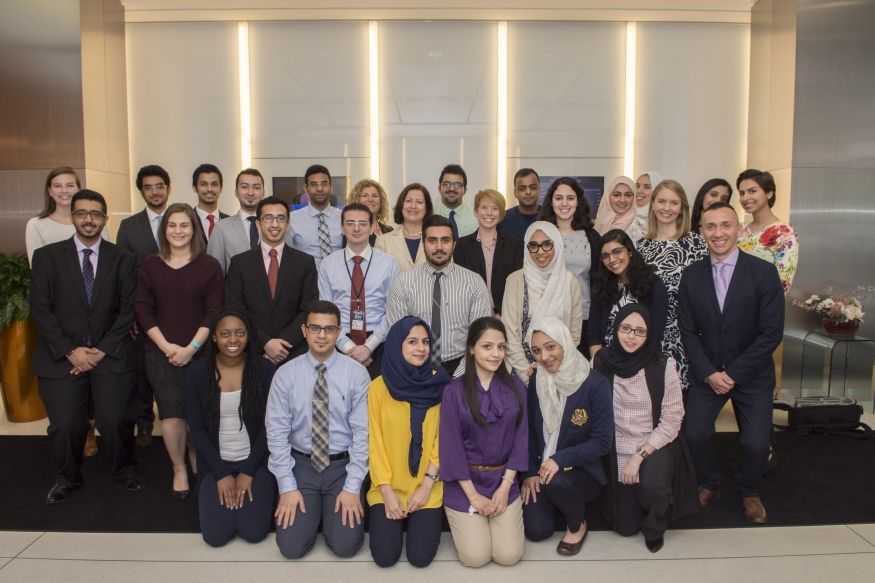
The Medical Research Fellowship Program (MRFP) at the George Washington University (GW) School of Medicine and Health Sciences (SMHS) provides international medical graduates with the opportunity to enhance their research and clinical skills, preparing them to be strong candidates when applying for U.S. residency programs in the United States. Since the MRFP launched in 2012, 86% of research fellows have successfully matched into U.S. residency positions after completion of the program.
We are now accepting applications for the next program that begins in May 2024! Please refer to the information below for more details.
The goals of the program include providing opportunities for research fellows to:
- Develop a rich and longstanding relationship with a GW faculty member
- Create a network of professional contacts for future support in international medicine
- Develop critical thinking, analytical, and practical inquiry skills utilizing the latest approaches in U.S. healthcare and medical research
- Build a foundation for utilizing evidence-based medicine
- Increase skills in critical appraisal, research design, and understanding of the entire medical research process
- Publish articles or abstracts in peer-reviewed journals and present research posters or papers at conferences
- Gain first-hand knowledge of the U.S. healthcare delivery and medical education system
- Develop personal and group leadership skills necessary for advancement in clinical practice and research
- Develop strategies for communicating clinical research and medical information in spoken and written English
- Gain broad public speaking and presentation experience and participate in at least one professional conference in field of interest
Research : Research fellows attend weekly critical appraisal sessions to increase their knowledge of research methods, analyze the latest in medical publications, and publish letters to the editor. Research fellows also participate in individual and group research projects alongside their faculty mentor aiming to present at a national conference and publish in a peer-reviewed journal.
Clinical observation : Research fellows actively and successfully participate as members of a clinical team. While direct, hands-on patient contact is not permitted, the research fellow engages with the team in all other clinical activities.
One-on-one mentorship : Each research fellow is matched with a GW faculty mentor in their specialty of choice. Research fellows join the faculty mentor and are integrated into the clinical team, which includes faculty, residents, and students. The faculty mentor provides counseling and guidance through weekly meetings.
U.S. residency application preparation : Research fellows are supported by IMP staff and the Program Medical Director who provide residency preparation interviews and review of curriculum vitae and personal statements. Research fellows can obtain detailed and personalized letters of recommendation from GW faculty members when appropriate.
Professional development : Research fellows attend regular clinical department grand rounds, conferences, and lectures with their team of faculty, residents, and students. Research fellows are key members of the team and fully participate in department activities.
Application Process
Research fellows can participate in the program for a duration of 6 months or 12 months and the recommended start date is in May. Earlier or later start dates are also considered on a case-by-case basis.
Applicants should submit the following required documents to the Office of International Medicine Programs (IMP) at [email protected] :
- Headshot photograph
- Curriculum vitae
- Personal statement (1 page)
- Medical school degree
- Medical school transcript
- Three letters of recommendation
- USMLE Step 1 and 2 score reports (if available)
Contact [email protected] with any questions or to request additional information about the program fees.
How to Apply for Pre-Residency Fellowships as an IMG
Everything you need to know.
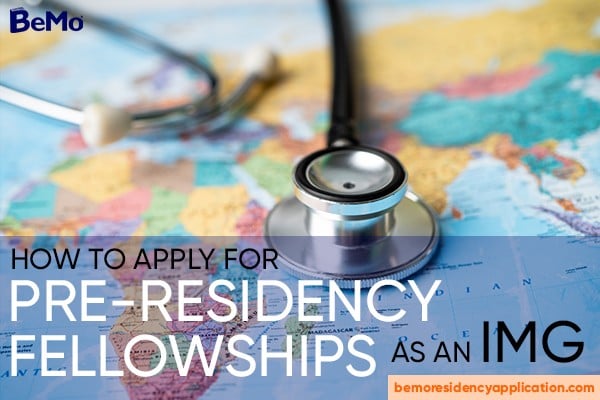
Want to know how to apply for pre-residency fellowships as an IMG? A pre-residency fellowship for international medical graduates can be a great first step in how to prep for your residency application and in your post-graduate medical career. For IMGs who want to practice in another country or apply for residencies abroad, a pre-residency fellowship can open more doors of opportunity for you. Applying for pre-residency fellowships are a long and involved process, but we’re here to help demystify it. In this blog, we’ll learn what pre-residency fellowships are, why they are a good choice for IMGs, how to apply, what you need for your application and how to improve your chances of getting accepted to a pre-residency fellowship abroad.
>> Want us to help you get accepted? Schedule a free strategy call here . <<
Article Contents 4 min read
What are pre-residency fellowships for imgs.
As an international medical graduate (IMG), if you’re planning to apply for a pre-residency fellowship, it’s important to understand what your obstacles are and how to overcome. But first you might be wondering, what exactly is a pre-residency fellowship and how can it help further my medical career?
A pre-residency fellowship, as the name implies, is a clinical training program or research fellowship medical graduates can apply for before they start their residency years. A pre-residency fellowship is usually a short-term program designed to provide rigorous clinical training or research experience in a given specialty or discipline. It’s essentially a work-study program for medical graduates. Typically, medical graduates will apply to a medical fellowship after their residency years, so for IMGs, applying for pre-residency fellowships can be the next step in the non-traditional route.
Applying to pre-residency fellowships can be how to get into residency programs as an IMG , it can help you get your foot in the door for a particular specialty or give you a competitive edge if you want to apply for residency programs in another country. A pre-residency fellowship can be a valuable experience to add to your residency CV , too.
So why apply for a fellowship before your residency? Residency programs, particularly in the US and Canada, can be especially competitive. Preference is given to domestic medical graduates and gaining a competitive advantage as an IMG can be difficult, especially in the more competitive residency programs. Applying for pre-residency fellowships can be a good option for US and Canadian citizens, too. If you are a US or Canadian citizen and you attended medical school abroad, you are still considered an international medical graduate and therefore you might be at a disadvantage when preparing for residency.
As an international medical graduate residency applicant, it’s a good idea to give yourself every advantage you can get. Applying for pre-residency fellowship programs can have several key benefits for IMGs:
A pre-residency fellowship can give you an excellent opportunity to explore other cultures, learn new languages and gain international experiences "}]" code="timeline1">
Now that you have your medical degree, figured out how to choose your medical specialty and decided that a pre-residency fellowship program is right for you, it’s time to find out how to apply and what you need to do.
Applying to pre-residency fellowships as an IMG requires several crucial steps. The process may also vary depending on the country you’re applying in, but the steps are relatively the same. For instance, work visa requirements and applications in the US, Canada or UK might look slightly different from each other.
Wherever you plan to apply, you’ll need to do a fair amount of research first. To start, research IMG-friendly residency programs and pre-residency fellowship programs in the country or region you plan to apply. Not all programs will accept international medical graduates, and eligibility requirements may vary from program to program. You’ll also need to check if the pre-residency fellowships are paid or not and if they fit your desired career path in medicine.
This is a general outline of the steps you’ll need to take as an IMG to apply for a pre-residency fellowship program in the US:
These are the very broad steps you’ll take as an IMG applying to a program in the US. We’ll look at some elements of the process to apply for a pre-residency fellowship in the US below.
Visa requirements will vary depending on the country you\u2019re applying to, but for IMGs applying to pre-residency fellowship programs in the US, the most common visas are the H1-B or Temporary Worker visa and the J-1 Exchange Visitor visa. It\u2019s important to note that these visas are temporary, and that once your pre-residency fellowship is over, you\u2019ll need to return to your home country before applying for a residency program in the US or elsewhere. If you decide to apply for a medical residency after you\u2019ve completed your pre-residency fellowship, you\u2019ll need to restart the visa application process. ","label":"Visa requirements","title":"Visa requirements"}]" code="tab1" template="BlogArticle">
A pre-residency fellowship application is fortunately nearly identical to a medical residency or medical fellowship application and requires many of the same components. It’s still always a good idea to check the individual requirements for each fellowship you apply for, as they may ask for additional components.
For your pre-residency fellowship application, you’ll need to prepare a personal statement, letters of recommendation, exam scores, a resume or CV. All of these can come together to create a strong application and help you as an IMG get into the program of your choice. Below we’ll take a closer look at each component of your application.
For your pre-residency fellowship application, attach your medical resume or CV and include any clinical experience and research experience you have. These experiences will give your application a definite boost. Pre-residency fellowships will be much more likely to accept an IMG who can demonstrate strong clinical skills or research experience. If you have any experience with the health care system in the country you\u2019re applying to, be sure to highlight this. You can also include any English Language Proficiency Tests you\u2019ve completed. Programs will look more favourably on applicants who have fewer cultural or language barriers to overcome, and who are familiar with the health care system and challenges in their country. ","label":"Resume or CV","title":"Resume or CV"}]" code="tab2" template="BlogArticle">
Want some tips for writing a residency personal statement? Watch this video.
How to Improve Your Chances of Getting a Pre-Residency Fellowship
Now that you know how to apply for pre-residency fellowships as an IMG and the key components of your application package, how can you make your application the best it can be? Pre-residency fellowships can be very competitive, and as an IMG you need to work that little bit harder to get your foot in the door. But there are many things you can do to strengthen your app and broaden your knowledge so you’re prepared for not only the application but your future career as a doctor.
As an IMG, you\u2019ll likely be invited for an interview at any pre-residency fellowships you apply to. Accept any interview invitations that you receive and start preparing. Take a look at some medical fellowship interview questions and answers for an idea of what you can expect during an interview and tips for making a good impression. It\u2019s also good IMG residency interview prep for that next step! A pre-residency fellowship interview will look very similar to a residency interview, so it\u2019s not only good practice but it\u2019s your chance to reaffirm that you\u2019re an excellent choice for the program. ","label":"Sharpen interview skills","title":"Sharpen interview skills"}]" code="tab3" template="BlogArticle">
A pre-residency fellowship is a short-term program designed to provide an international medical graduate with clinical experience or research publications.
In the US and Canada, IMGs are considered any medical graduates who have graduated from a medical school outside the United States or Canada. Even if you are a US or Canadian citizen, but graduated medical school outside of the country, you are considered an IMG. If you are an international student who graduated from an American or Canadian medical school, you are NOT considered an IMG.
A pre-residency fellowship can be an excellent way for IMGs to gain additional clinical or research experience, and help them secure a medical residency in the future.
To apply for a pre-residency fellowship you’ll need to become certified through the Educational Commission for Foreign Medical Graduates. You’ll also need to complete any required medical licensing examinations, secure the proper work visa and submit the required documents to pre-residency fellowship programs.
To improve your pre-residency fellowship application as an IMG, be sure to include any clinical or research experience you already have. You can also demonstrate a working knowledge of the American or Canadian health care systems, a proficiency of English and strong interview skills, all of which will help you secure a position in a program as an IMG.
Internal medicine and family medicine are considered the easiest residencies for an IMG to get into. These specialties have the highest acceptance rates for IMGs.
Yes; there are many pre-residency fellowship programs which accept IMGs in the US and Canada. You can find which ones accept IMGs by checking individual program requirements and eligibility.
Pre-residency fellowships, like residency programs, can be quite competitive and often give favour to domestic medical graduates over IMGs. However, there are some programs and specialties that are more friendly and less competitive for IMGs, such as internal medicine or pediatrics.
Want more free tips? Subscribe to our channels for more free and useful content!
Apple Podcasts
Like our blog? Write for us ! >>
Have a question ask our admissions experts below and we'll answer your questions.
ASHRAF AWAD
Hello, Can you help me with a list of programs that are offering the pre-residency fellowship and also help me with the application. I am ECFMG certified and also I am American citizen. Thank you
BeMo Academic Consulting
Hello Ashraf, thank you very much for your question. You can reach out to us for a free initial strategy call to discuss how we can help you.
Swarada Yadav
What all options do i have as a IMG with ecfmg certification?
Hi Swarada! Thanks for your comment. Please read all the details in this blog .
Get Started Now
Talk to one of our admissions experts
Our site uses cookies. By using our website, you agree with our cookie policy .
WAIT! Still not sure if we can help you with your application?
We want to offer you a free initial consultation where we'll answer all your questions and show you how we can help you match your top choice program.
The Role of International Medical Graduates (IMGs) in the US Healthcare System
- First Online: 05 January 2021
Cite this chapter

- Michael G. Fitzsimons 3 , 4 &
- Bruna Maria Castro de Oliveira 3 , 5
630 Accesses
Physicians that received their medical education in countries other than the United States comprise approximately 25% of the doctors currently practicing within our borders. These international medical graduates (IMGs) must overcome a variety of geographical, cultural, legislative, and academic hurdles in order to enter into graduate medical education (GME) that graduates from United States Medical Schools (USMGs) are not subject. Upon completion of training, these individuals often endure questions of their competence while facing discrimination even though the quality of care delivered is at least equal if not superior to that of USMGs. This chapter addresses the history of the IMG system, debate regarding their role, educational and employment status, policy and regulation, quality of care delivered, as well as impact within academic medicine, and individual experience.
This is a preview of subscription content, log in via an institution to check access.
Access this chapter
- Available as PDF
- Read on any device
- Instant download
- Own it forever
- Available as EPUB and PDF
- Compact, lightweight edition
- Dispatched in 3 to 5 business days
- Free shipping worldwide - see info
Tax calculation will be finalised at checkout
Purchases are for personal use only
Institutional subscriptions
Hamnvik OPR. Applying for residency as an international medical graduate. NEJM Resident 360 [internet]. 2019 [cited 2020 Mar 16]. Available from: https://resident360.nejm.org/expert-consult/applying-for-residency-as-an-international-medical-graduate .
Hallock JA, Seeling SS, Norcini JJ. The international medical graduate pipeline. Health Aff. 2003;22(4):94–6.
Article Google Scholar
Parsi K. International medical graduates and global migration of physicians: fairness, equity, and justice. Medscape J Med. 2008;10(12):284.
PubMed PubMed Central Google Scholar
Brotherton SE, Etzel SI. Graduate medical education, 2008-2009. JAMA. 2009;302(12):1357–72.
Article CAS PubMed Google Scholar
Brotherton SE, Etzel SI. Graduate medical education, 2018-2019. JAMA. 2019;322(10):996–1016.
Article PubMed Google Scholar
Melnick DE. From defending the walls to improving global medical education: fifty years of collaboration between the ECFMG and the NBME. Acad Med. 2006;81(12):S30–5.
Flexner A. Medical education in the United States and Canada: a report to the Carnegie Foundation for the advancement of teaching. Carnegie Foundation for the Advancement of Teaching, Bulletin number four, 1910.
Google Scholar
Education Commission for Foreign Medical Graduates. About ECFMG: History . Available from: https://www.ecfmg.org/about/history.html . Accessed 24 Nov 2019.
National Committee on Foreign Medical Education and Accreditation. U.S. Department of Education. Accreditation and standards in foreign medical education. Available from: https://sites.ed.gov/ncfmea/ . Accessed 15 Jan 2020.
Education Commission for Foreign Medical Graduates. Medical school accreditation requirement for ECFMG certification . Available form: www.ecfmg.org/accreditation/ . Accessed 24 Nov 2019.
Allman R, Perelas A, Eiger G. POINT: should the United States provide postgraduate training to international medical graduates? Yes. Chest. 2016;149(4):893–5. Available from: https://doi.org/10.1016/j.chest.2016.01.011 .
O’Reilly KB. How IMGs have changed the face of American medicine. https://www.ama-assn.org/education/international-medical-education/how-imgs-have-changed-face-american-medicine . Accessed 15 Feb 2020.
Mandel J. COUNTERPOINT: Should the United States Provide Postgraduate training to international medical graduates? No. Chest. 2016;149(4):895–7. Available from: https://doi.org/10.1016/j.chest.2016.01.009 .
Ludmerer LM. Let me heal: the opportunity to preserve excellence in American medicine. New York: Oxford University Press; 2014. p. 24.
Mullan F. The metrics of physician brain drain. N Engl J Med. 2005;353:1810–8.
Association of American Medical Colleges. 2019 State physician workforce data report . Available from: https://www.aamc.org/data-reports/workforce/report/state-physician-workforce-data-report . Accessed on 12 Nov 2019.
Foundation for Advancement of International Medical Education and Research. United States physician workforce issues. Available from: https://www.faimer.org/research/workforce.html . Accessed 28 Dec 2019.
Educational Commission for Foreign Medical Graduates. Top five countries of citizenship, certificants 1994–2018. Source: Available from: https://www.ecfmg.org/resources/data-certification.html . Accessed 28 Dec 2019.
Phillips RL, Petterson S, Fryer GE, Rosser W. The Canadian Contribution to the US physician workforce. CMAJ. 2007;176(8):1083–7.
Article PubMed PubMed Central Google Scholar
Khan MH, Abdullah N, Stanbrook MB. Withdrawal of Saudi trainees exposes the vulnerability of Canadian healthcare. CMAJ. 2018;190(35):E1030–2. Available from: https://doi.org/10.1503/cmaj.181084 . Accessed 1 Nov 2019.
Jolly P, Garrison G, Boulet JR, Levitan T, Cooper RA. Three pathways to a physician career: applicants to U.S. MD and DO schools and U.S. citizen applicants to international medical schools. Acad Med. 2008;83(12):1125–31. Available from: https://doi.org/10.1097/ACM.0b013e31818c6445 . Accessed 13 Oct 2010.
Van Zanten M, Boulet JR. Medical Education in the Caribbean: quantifying the contribution of Caribbean-educated physicians to primary care in the United States. Acad Med. 2013;88(2):276–81.
Juraschek SP, Zhang X, Ranganathan VK, Lin V. United States registered nurse workforce report card and shortage forecast. Am J Med Qual. 2012;27(3):241–9. Available from: https://doi.org/10.1177/1062860611416634 . Accessed 1 Nov 2019.
Mazurenko O, Menachemi N. Use of foreign-educated nurses and patient satisfaction in U.S. hospitals. Health Care Manag Rev. 2016;41(4):306–15. Available from: https://doi.org/10.1097/HMR.0000000000000077 .
Ranasinghe PD. International medical graduates in the US physician workforce. J Am Osteopath Assoc. 2015;115(4):236–41. Available from: https://doi.org/10.7556/jaoa.2015.047 .
Gastel B. Impact of international medical graduates on U.S. and global healthcare: summary of the ECFMG 50 th anniversary invitational conference. Acad Med. 2006;81(12 Suppl):S3–6. Available from: https://doi.org/10.1097/01.ACM.0000243340.89496.43 .
U.S. Citizenship and Immigration Services. Conrad 30 waiver program. https://www.uscis.gov . Accessed 1 Jan 2020.
Hagopian A, Thompson MJ, Kaltenbach E, Hart LG. Health departments use of international medical graduates in physician shortage areas. Health Aff. 2003;22(5):241–9. Available from: https://doi.org/10.1377/hlthaff.22.5.241 .
Knight V. American medical students less likely to choose to become primary care doctors. https://khn.org/news/american-medical-students-less-likely-to-choose-to-become-primary-care-doctors/ . Accessed 1 Feb 2020.
National Resident Matching Program. Results and data 2019 main residency match. https://mk0nrmp3oyqui6wqfm.kinstacdn.com/wp-content/uploads/2019/04/NRMP-Results-and-Data-2019_04112019_final.pdf . Accessed 1 Feb 2020.
Jimenez-Gomez A, FitzGerald MR, Leon-Astudillo C, Gonzalez-delRey J, Schubert CJ. Performance of international medical graduates in pediatric residency: a study of peer and faculty perceptions. Acad Pediatr. 2018;18(7):728–32. Available from: https://doi.org/10.1016/j.acap.2018.07.006 .
Norcini JJ, Boulet JR, Opalek A, Dauphinee WD. The relationship between licensing examination performance and the outcomes of care by international medical school graduates. Acad Med. 2014;89(8):1157–62. Available from: https://doi.org/10.1097/ACM.0000000000000310 .
Tsugawa Y, Jena AB, Orav EJ, Jha A. Quality of care delivered by general internists in US hospitals who graduated from foreign versus US medical schools: observational study. BMJ. 2017;356:j273. Available from: https://doi.org/10.1136/bmj.j273 .
Norcini JJ, Boulet JR, Dauphinee WD, Opalek A, Krantz ID, Anderson ST. Evaluating the quality of care provided by graduates of international medical schools. Health Aff. 2010;29(8):1461–8. Available from: https://doi.org/10.1377/hlthaff.2009.0222 .
Zaheer S, Pimentel SD, Simmons KD, Kuo LE, Datta J, Williams N, Fraker DL, Kelz RR. Comparing international and United States undergraduate medical education and surgical outcomes using a refined balance matching methodology. Ann Surg. 2017;265(5):916–22. Available from: https://doi.org/10.1097/SLA.0000000000001878 .
Alexander H, Heinig SJ, Fang D, Dickler H, Korn D. Contributions of international medical graduates to US biomedical research: the experience of US medical schools. J Investig Med. 2007;55(8):410–4. Available from: https://doi.org/10.2310/6650.2007.00025 .
Khullar D, Blumenthal DM, Olenski AR, Jena ABUS. Immigration policy and American medical research: the scientific contributions of foreign medical graduates. Ann Intern Med. 2017;167(8):584–6. Available from: https://doi.org/10.7326/M17-1304 .
National Institute of Health. Loan repayment programs. https://www.lrp.nih.gov .
Johnson SR. What do U.S. immigration policies mean for the healthcare workforce? Available from: https://www.modernhealthcare.com/article/20180519/NEWS/180519929/what-do-u-s-immigration-policies-mean-for-the-healthcare-workforce .
Kahn PA, Gardin TM. Distribution of physicians with H-1B visas by state and sponsoring employer. JAMA. 2017;317(21):2235–7. https://doi.org/10.1001/jama.2017.4877 .
Kidia KK. American health is global health. Ann Intern Med. 2017;166(8):589–91. Available from: https://doi.org/10.7326/M17-0323 .
Chen PG, Nunez-Smith M, Bernheim SM, Berg D, Gozu A, Curry LA. Professional experiences of international medical graduates practicing primary care in the United States. J Gen Intern Med. 2010;25(9):947–53. Available from: https://doi.org/10.1007/s11606-010-1401-2 .
Chen LH, Wilson ME. The globalization of healthcare: implications of medical tourism for the infectious disease clinician. Clin Infect Dis. 2013;57(12):1753–9. Available from: https://doi.org/10.1093/cid/cit540 .
Mayberry RM, Mili F, Ofili E. Racial and ethnic differences in access to medical care. Med Care Res Rev. 2000;57(1):108–45. Available from: https://doi.org/10.1177/1077558700057001S06 .
Ferguson WJ, Candib LM. Culture, language, and the doctor-patient relationship. Fam Med. 2002;34(5):353–61.
PubMed Google Scholar
Traylor AH, Schmittdiel JA, Uratsu CS, Mangione CM, Subramanian U. Adherence to cardiovascular disease medications: does patient-provider race/ethnicity and language concordance matter? J Gen Intern Med. 2010;25(11):1172–7. Available from: https://doi.org/10.1007/s11606-010-1424-8 .
González HM, Vega WA, Tarraf W. Health care quality perceptions among foreign-born Latinos and the importance of speaking the same language. J Am Board Fam Med. 2010;23(6):745–52. Available from: https://doi.org/10.3122/jabfm.2010.06.090264 .
Padela AI, Curlin FA. Religion and disparities: considering the influence of Islam on the Health of American Muslins. J Relig Health. 2013;52(4):1333–45. Available from: https://doi.org/10.1007/s10943-012-9620-y .
Meta B, Galford J, Purichia H. Leadership of United States academic anesthesiology programs 2006; chairperson characteristics and accomplishments. Anesth Analg. 2007;105(5):1338–45. Available from: https://doi.org/10.1213/01.anee.0000284666.39224.05 .
Asad ZUA, Sivaram CA. Diversity and inclusion in leadership positions of the American college of cardiology: how do the international medical graduates (IMGS) fare? JACC. 2019;73(9). Available from: https://doi.org/10.1016/S0735-1097(19)33635-6 .
Dahm MR. Exploring perceptions and use of everyday language and medical terminology among international medical graduates in a medical ESP course in Australia. Engl Specif Purp. 2011;30(3):186–97. Available from: https://doi.org/10.1016/j.esp.2011.02.004 .
Brown D. At med school, a new degree of diversity: classes reflect a foreign flavor. Available from: https://www.washingtonpost.com/wp-dyn/content/article/2007/05/31/AR2007053102433.html . Accessed 25 Feb 2020.
Woods SE, Harju A, Rao S, Koo J, Kini D. Perceived bias and prejudices experienced by international graduates in the US post-graduate medical education system. Med Edu Online. 2006;11(1):4595. Available from: https://doi.org/10.3402/meo.v11i.4595 .
Desbiens NA, Vidaillet HJ. Discrimination against international medical graduates in the United States residency program selection process. BMC Med Educ. 2010;10:5. Available from: https://doi.org/10.1186/1472-6920-10-5 .
Balon R, Mufti R, Williams M, Riba M. Possible discrimination in recruitment of psychiatry residents? Am J Psychiatry. 1997;154(11):1608–9. Available from: https://doi.org/10.1176/ajp.154.11.1608 .
Horvath K, Coluccio G, Foy H, Pellegrini C. A program for successful integration of international medical graduates (IMGs) into U.S. surgical residency training. Curr Surg. 2004;61(5):492–8. Available from: https://doi.org/10.1016/j.cursur.2004.06.011 .
Nwagwu EOC. Migration of international medical graduates: implications for the brain drain. Open Med J. 2015;2:17–24. Available from: https://doi.org/10.2174/1874220301401010017 .
Download references
Author information
Authors and affiliations.
Harvard Medical School, Boston, MA, USA
Michael G. Fitzsimons & Bruna Maria Castro de Oliveira
Division of Cardiac Anesthesia, Department of Anesthesia, Critical Care, and Pain Medicine, Massachusetts General Hospital, Boston, MA, USA
Michael G. Fitzsimons
Department of Anesthesia, Critical Care, and Pain Medicine, Massachusetts General Hospital, Boston, MA, USA
Bruna Maria Castro de Oliveira
You can also search for this author in PubMed Google Scholar
Corresponding author
Correspondence to Michael G. Fitzsimons .
Editor information
Editors and affiliations.
California Institute of Behavioral Neurosciences and Psychology, Fairfield, CA, USA
Hassaan Tohid
University of California, San Francisco, CA, USA
Howard Maibach
Rights and permissions
Reprints and permissions
Copyright information
© 2021 Springer Nature Switzerland AG
About this chapter
Fitzsimons, M.G., de Oliveira, B.M.C. (2021). The Role of International Medical Graduates (IMGs) in the US Healthcare System. In: Tohid, H., Maibach, H. (eds) International Medical Graduates in the United States. Springer, Cham. https://doi.org/10.1007/978-3-030-62249-7_15
Download citation
DOI : https://doi.org/10.1007/978-3-030-62249-7_15
Published : 05 January 2021
Publisher Name : Springer, Cham
Print ISBN : 978-3-030-62248-0
Online ISBN : 978-3-030-62249-7
eBook Packages : Biomedical and Life Sciences Biomedical and Life Sciences (R0)
Share this chapter
Anyone you share the following link with will be able to read this content:
Sorry, a shareable link is not currently available for this article.
Provided by the Springer Nature SharedIt content-sharing initiative
- Publish with us
Policies and ethics
- Find a journal
- Track your research

- calculators
- _GFR calculator
- _Pregnancy Due Date Calculator
- suggestions
Research Opportunities for International Medical Graduates (IMGs)
Introduction.
Research positions are invaluable for International Medical Graduates (IMGs) looking to enhance their residency applications and broaden their medical knowledge. Securing a research position as an IMG can be a crucial step towards matching into competitive residency programs.
{getToc} $title={Table of Contents}
Understanding the Importance of Research for IMGs
Engaging in research is crucial for IMGs, as it enhances residency applications and career prospects. Research showcases dedication to academic excellence, critical thinking skills, and staying updated on medical advancements. It sets IMGs apart, offers networking opportunities, and builds credibility in the medical community. Embracing research early positions IMGs as competitive candidates passionate about innovation and discovery.
Exploring Research Opportunities
types of research opportunities for imgs.
● Paid Research Positions
● Research Electives
● Volunteer Opportunities
● Fellowships
Exploring research opportunities as an International Medical Graduate (IMG) can open up a world of possibilities for career advancement and personal growth. From paid research positions to volunteer opportunities, there are various avenues for IMGs to delve into the realm of research and contribute meaningfully to their field.
One promising avenue for IMGs is securing paid research positions. These positions not only offer financial compensation but also valuable hands-on experience in conducting research and collaborating with experts in the field. Additionally, IMGs can explore research electives as a way to further enhance their skills and knowledge in a specific area of interest.
Volunteer opportunities also present a valuable option for IMGs looking to gain exposure to research initiatives while giving back to the community. By volunteering their time and expertise, IMGs can make a meaningful impact on important research projects and build connections within the academic and professional community.
For those seeking more structured research experiences, fellowships provide a structured pathway for IMGs to engage in intensive research projects under the guidance of experienced mentors. These programs offer a unique opportunity for IMGs to deepen their understanding of key research methodologies and contribute to cutting-edge discoveries in their field.
Identifying IMGFriendly Research Programs
Identifying IMG-friendly research programs is crucial for ensuring that IMGs have access to supportive environments where they can thrive and grow as researchers. By researching programs that specifically cater to the needs of IMGs, individuals can maximize their chances of success and find opportunities that align with their career goals.
Online Research Opportunities
In today's digital age, online research opportunities have also emerged as a convenient option for IMGs looking to engage in remote or virtual research projects. These opportunities allow IMGs to collaborate with researchers from around the world, access cuttingedge resources, and contribute to impactful studies without geographical constraints.
By exploring these diverse types of research opportunities, IMGs can expand their horizons, build valuable skills, and make meaningful contributions to the advancement of knowledge in their respective fields. Whether through paid positions, volunteer work, fellowships, or online collaborations, there are ample ways for IMGs to immerse themselves in the exciting world of research and shape the future of healthcare innovation.
How to Secure a Research Position as an IMG:
Navigating the application process to secure a research position as an International Medical Graduate (IMG) can be a challenging yet rewarding endeavor. It is essential for IMGs to strategically approach their applications to maximize their chances of securing research opportunities in competitive environments.
Tips for Applying to Research Programs
When applying to research programs, IMGs should highlight their unique perspectives, diverse backgrounds, and strong work ethic. Emphasizing any previous research experience or publications can significantly enhance the strength of their applications. Additionally, showcasing a genuine passion for research and a willingness to learn and adapt can set IMG applicants apart from the competition.
Utilizing International Research Initiatives
One effective strategy for IMGs is to utilize international research initiatives. Collaborating with researchers from different countries not only broadens one's academic network but also exposes them to diverse methodologies and perspectives. This global collaboration can enhance the quality of research output and open doors to new opportunities in the field.
By carefully crafting their applications, leveraging international collaborations, and demonstrating a genuine research interest, IMGs can navigate the application process successfully and secure valuable research positions that align with their career goals.

Overcoming Challenges as an IMG in Finding Research Positions
For International Medical Graduates (IMGs), one of the significant challenges they face is finding research positions to gain valuable experience. The competition for research opportunities can be fierce, especially in a new healthcare system like the United States. However, with determination and strategic planning, IMGs can overcome these challenges and secure research positions that will enhance their residency applications.
Addressing the Need for US Clinical Experience
One way IMGs can increase their chances of finding research positions is by gaining US clinical experience. Many research programs prefer candidates who have handson experience working within the US healthcare system. By participating in observerships, externships, or volunteer opportunities at hospitals or clinics, IMGs can demonstrate their commitment to understanding and contributing to American healthcare practices.
Insights on Research Requirements for Residency Matching
Research experience is highly valued by residency programs during the matching process. By actively engaging in research projects and publications, IMGs can showcase their academic curiosity, critical thinking skills, and dedication to advancing medical knowledge. Collaborating with mentors or joining research teams can also provide valuable networking opportunities that may lead to future career prospects.
In conclusion, while it may be challenging for IMGs to find research positions initially, with perseverance and a proactive approach towards gaining US clinical experience and meeting residency program requirements through meaningful research contributions, they can enhance their chances of securing coveted positions in competitive healthcare settings.

FAQ Section: Addressing Common Queries:
1. How do I get a research position as an IMG?
To secure a research position as an (IMG), leverage your skills by networking, showcasing passion through publications, collaborating with researchers, and staying updated on trends. Tailor your application to stand out and persevere in seeking opportunities to increase your chances of success.
2. What is the importance of research for IMGs?
Research is important for IMGs as it can enhance their residency applications, contribute to medical knowledge, and improve their chances of matching into competitive specialties.
3. How can I work in the USA as an IMG?
IMGs can work in the USA by obtaining ECFMG certification, passing USMLE exams, applying for residency through ERAS, and obtaining a J1 visa or other appropriate work authorization.
4. How difficult is it for IMGs in Canada?
It can be challenging for IMGs in Canada to secure residency positions due to limited spots, competition, and varying provincial requirements.
5. Is US clinical experience necessary for IMGs?
While US clinical experience is not always mandatory, it can significantly strengthen an IMG's residency application and increase their chances of matching successfully.
6. Do IMGs need research for internal medicine residency?
Research experience is not always a requirement for internal medicine residency, but it can be beneficial in demonstrating academic interest, skills, and commitment to the field.
7. What is considered an IMG?
An International Medical Graduate (IMG) is a physician who received their medical degree from a medical school outside the country where they intend to practice.
8. What is the easiest specialty to match into for IMGs?
The easiest specialty for IMGs to match into can vary, but typically primary care specialties like Family Medicine and Internal Medicine have higher match rates for IMGs.
9. Is it hard to get a research position as an IMG?
It can be challenging for IMGs to secure research positions due to competition, limited opportunities, and potential visa restrictions.
10. Should I participate in research studies as an IMG?
Participating in research studies can be beneficial for IMGs as it can enhance their skills, improve their residency applications, and contribute to the medical field.
11. How do I apply for a research position?
To apply for a research position, IMGs can reach out to academic institutions, hospitals, research organizations, or universities directly, express their interest, and submit their credentials.
12. How do I get hired for research?
IMGs can increase their chances of getting hired for research by networking with professionals in the field, gaining relevant experience, showcasing their skills and knowledge, and being proactive in seeking out opportunities.
13. How do I get a research position in the US as an IMG?
To secure a research position in the US as an IMG, it is important to build a strong CV, network with researchers and institutions, apply to open positions, and demonstrate your passion and commitment to research.
Check out : Total costs for USMLE exam 2024
Contact Form
- skip to Cookie Notice
- skip to Main Navigation
- skip to Main Content
- skip to Footer
- Find a Doctor
- Find a Location
- Appointments & Referrals
- Patient Gateway
- Español
- Leadership Team
- Quality & Safety
- Equity & Inclusion
- Community Health
- Education & Training
- Centers & Departments
- Browse Treatments
- Browse Conditions A-Z
- View All Centers & Departments
- Clinical Trials
- Cancer Clinical Trials
- Cancer Center
- Digestive Healthcare Center
- Heart Center
- Mass General for Children
- Neuroscience
- Orthopaedic Surgery
- Information for Visitors
- Maps & Directions
- Parking & Shuttles
- Services & Amenities
- Accessibility
- Visiting Boston
- International Patients
- Medical Records
- Billing, Insurance & Financial Assistance
- Privacy & Security
- Patient Experience
- Explore Our Laboratories
- Industry Collaborations
- Research & Innovation News
- About the Research Institute
- Innovation Programs
- Education & Community Outreach
- Support Our Research
- Find a Researcher
- News & Events
- Ways to Give
- Patient Rights & Advocacy
- Website Terms of Use
- Apollo (Intranet)
- Like us on Facebook
- Follow us on Twitter
- See us on LinkedIn
- Print this page
International Research Fellowship
Contact Information
Division of Trauma, Emergency Surgery and Surgical Critical Care (TESSCC)
165 Cambridge Street, Suite 810 Boston , MA 02114
Email: [email protected]
Explore This Fellowship
The approved applicant will hold a Massachusetts General Hospital and a Harvard Medical School (HMS) appointment as a research fellow. Applications from non-U.S. candidates are encouraged. The program involves clinical and laboratory research activities, allowing the fellow to participate in single- and multi-center studies as well as multiple clinical research projects related to retrospective, prospective and randomized controlled studies. The fellow will also participate in basic science research at the Trauma Research Laboratory and the animal operating rooms. The precise balance between clinical and laboratory research will be decided on a case-by-case basis according to the fellow’s preference and the divisional needs.
The research fellow will be assigned to one faculty member of the division and become actively involved in clinical and laboratory research. The research fellow will attend all educational programs of the division and participate in an observational capacity in clinical activities. At the end of the fellowship, the fellow is expected to have rich knowledge in trauma, emergency surgery and surgical critical care research as well as have completed multiple studies, which can be presented at major surgical meetings and published in major surgical journals.
Note: Direct contact with patients is not allowed within this program.
Requirements
Individuals interested in applying for a research fellow position must meet the following criteria:
- Fluent in English, both spoken and written
- Medical degree (MD equivalent)
- Minimum two-year commitment
Although United States Medical Licensing Examination (USMLE) scores are not an absolute prerequisite for admission to the Research Fellowship Program, applicants who have taken their USMLE's are preferred.
The research program of the division is funded by multiple federal agencies and industry. Financial support is possible through grants, but limited, and therefore cannot be promised. Evidence of external institutional financial support is highly desirable. Decisions about financial support are made on a case-by-case basis, depending on availability of funds, nature of research and performance of the fellow.
The fellow is expected to be familiar with study design and methodology as well as simple statistical analysis (univariate analysis, t-test, chi-square).
How to Apply
To apply for a research fellow position, interested individuals should submit:
- Application Form , including current photo
- Letter of intent (one page) describing the applicant's goals and expectations from the research fellowship. The statement should clarify whether the candidate requests full, partial or no financial support, and clearly state the intent (or lack of intent) to pursue residency in the U.S. upon the completion of the program
- A curriculum vitae that is detailed and chronologically organized
- Two (2) letters of recommendation from professors or directors at the applicant's institution (from the past 12 months)
This material should be properly ordered and compiled into one (1) PDF and emailed to [email protected] . The applicant will be notified via e-mail within five (5) business days upon receipt of the requested documentation.
Important Dates
Start dates are normally in/around July. The selection committee—chaired by George Velmahos, MD, PhD, Division Chief and John Hwabejire, MBBS, MPH, Director of Trauma Research—will review all applications and select fellows based on need and funding availability (usually, two to four fellows are selected each year). Zoom interviews will be arranged during the selection process. Important dates in the application and selection process are approximate:
- Deadline for applications: October 14, 2024
- Selection Committee meeting: November 18, 2024
- Notifications to applicants: December 30, 2024
Appointment Process
If accepted, the fellow will receive a research fellow appointment package, which should be promptly completed and returned. Delays on receiving a completed appointment package may compromise the appointment. Please note that the appointment and visa process can take three to four months.
Among other forms, the package includes:
- Application for initial appointment to professional staff of Mass General and HMS
- Doctoral degree diploma, translated to English and notarized
- Letter verifying source and level of any external institutional financial support
- Visa application
Note: As part of the appointment process, candidates are required to pass a Criminal Offender Record Information (CORI) background check.
Selection Committee
These are the members of the selection committee for the International Research Fellowship program.

John Hwabejire, MBBS, MPH
- Director, Trauma Research
- Trauma and Acute Care Surgeon

George Velmahos, MD, PhD
- Division Chief of Trauma, Emergency Surgery and Surgical Critical Care
- John F. Burke Professor of Surgery, Harvard Medical School
Teaching Generations of Health Care Professionals
Mass General is the largest teaching hospital of Harvard Medical School. We train future healthcare professionals in innovative therapies.
Contact the International Research Fellowship team for more information.

We’re excited to offer an opportunity for students to participate in two-week rotations coinciding with AMSA’s 2024 FP4C conference from May 30–June 1.
Clinical training solutions and software that empower medical trainees, schools, and hospitals.
U.s. clinical training opportunities for medical, dentistry, do, pa, and nursing trainees.
Rotations to choose from
Trainees and counting
Quality. Variety. Dependability. Clinical training you can count on.
Our full-service clinical experience platform allows medical trainees to search, apply for, and secure rotations. Our technology also allows institutions to manage students and set training capacity. Both trainees and administrators can rest assured knowing AMO's dedicated support team is with them every step of the way.

Healthcare Providers
Share site and program details, set your schedule, receive application notifications, host amo trainees.
Healthcare Schools
Send us your requirements, preview our site and software, search rotations for students on platform, send students for training.

Agencies & Associations
Contact our partnerships team, receive a unique code to share with your contacts, promote our experiences to your audience, track your contacts' progress, hosting opportunities for healthcare providers, set your schedule, host amo visitors, clinical training solutions for schools, clinical training for agents, receive a unique code to share with your contacts, promote our experiences to your audience, track your contacts' progess, search rotations for students on platform.
“AMO, for me, is really the only organization that’s reached out to [medical trainees] at a high level, and that brings them from a wider range of organizations and countries. I think the ability to exchange information with people of different backgrounds and different training makes you a better physician; it actually fulfills one of your directives to teach other people.”
Dr. G, Orthopedic Surgeon AMITA Health, Chicago, IL
Explore clinical experiences by areas of study
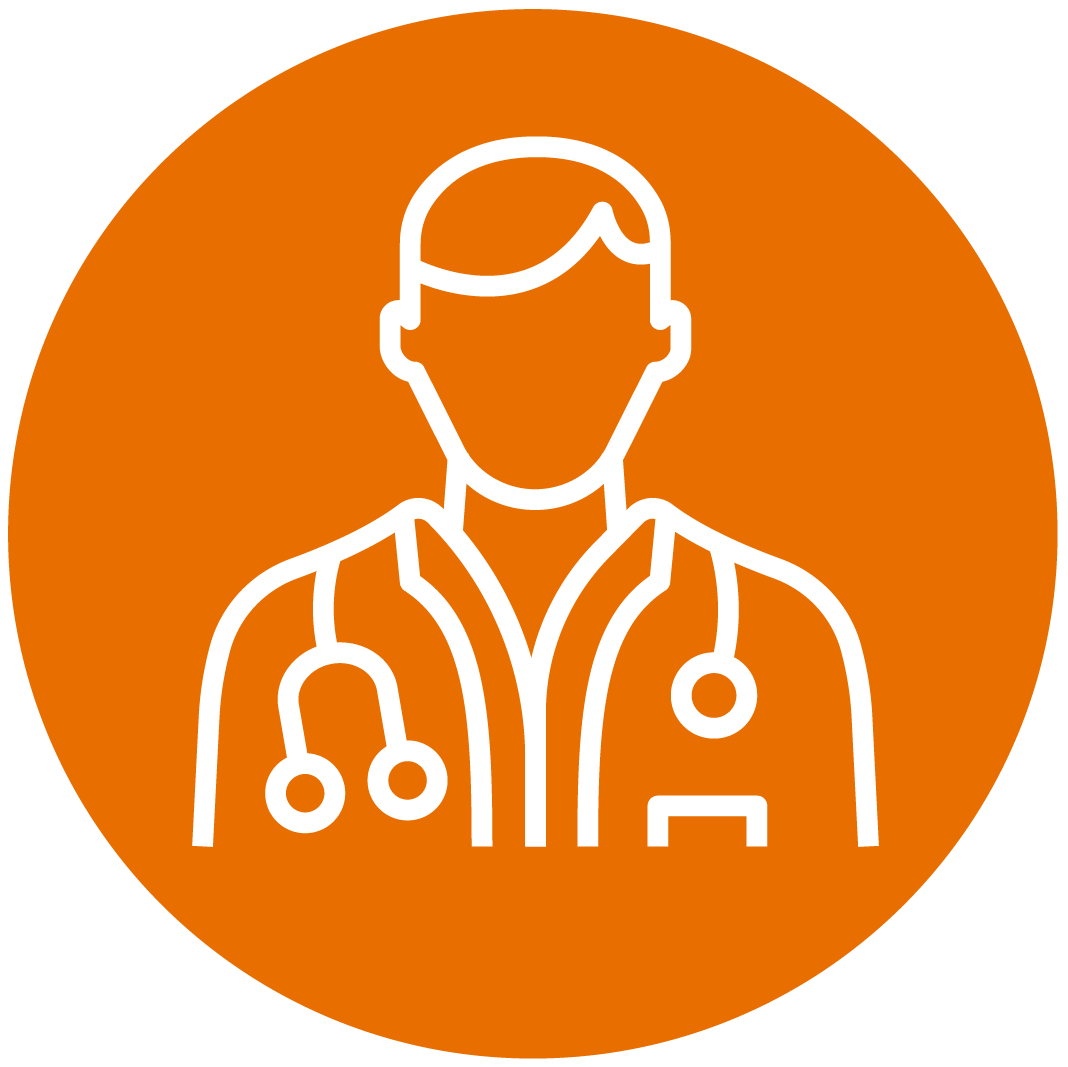
Select Partners

Our Partners
Awards and nominations.

Pieoneer of the year
The PIEoneer Awards 2022

product innovation
Real Innovation Technology Awards 2022

President's "E" Award for Exports
U.S. Department of Commerce 2021

U of Chicago New Venture Challenge
University of Chicago 2017
Sales partnerships ethics in sales
Stevie Awards 2022
“I came in my first day expecting to have a good shadowing experience and some networking, but it was way more than that. I was able to demonstrate my theoretical knowledge, perform procedures under the doctor’s guidance, and meet an amazing team of doctors and residents. I learned so much from the doctor and his practice."
Ana, Colombia Dermatology—Ft. Lauderdale, FL
444 N. Wells St., Suite #601 Chicago, IL 60654
+1.312.821.9020 [email protected]
Want to learn more? Get in touch!
Follow us on social!
AMOpportunities® powered by AMOpportunities Inc.
All Rights Reserved
Terms & Conditions
- Student/Faculty Portal
- Learning Hub (Brightspace)
- Continuous Professional Development

Mayo Clinic is a leading academic medical and research center with an annual research budget of $890 million, of which $565 million comes from external grants and contracts.
During your training, you have the opportunity to work on a wide range of basic, translational and clinical research projects in state-of-the-art facilities. You can also conduct clinical research in conjunction with your clinical rotations.
Most residencies and fellowships include dedicated research time designed to enhance the training experience.
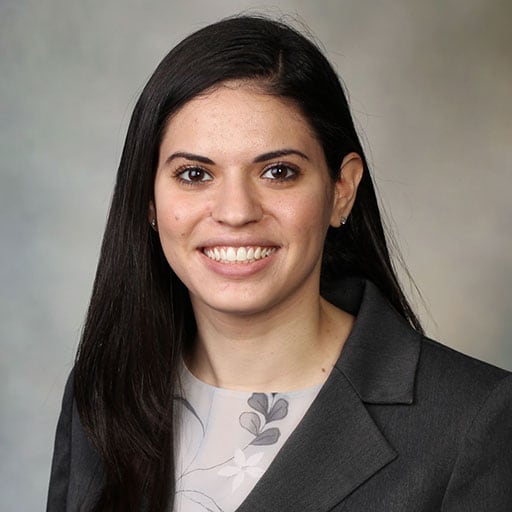
Yassmeen Abdel-Aty, M.D.
One of the cool things about Mayo Clinic is how much emphasis we put on research and innovation, and how it's not just in the lab with basic science, but it's actually translated in our clinics, and we can take part of trials and register patients in trials. You feel like you're part of what could be a therapy that changes the world.
Yassmeen Abdel-Aty, M.D. Otolaryngology Residency (Arizona)
Research by the numbers: People
Research personnel
Physicians involved in research
Scientific faculty (career scientists)
Research by the numbers: Facilities
Core research laboratories
393,328 sq. ft.
Research laboratory space
1,002,899 sq. ft.
Total research space
Research by the numbers: Studies and publications
New IRB-approved human research studies in 2020
Peer-reviewed publications in 2020
Active grants and contracts in 2020
Gallery of laboratories and research facilities photo gallery
Mayo Clinic has about 50 research centers and programs , more than 20 core resources , and nearly 400,000 square feet of research laboratory space. Click through the gallery to see actual research spaces you may encounter.

Research at Mayo Clinic
Key factors that distinguish Mayo Clinic research include:
- Collaborative, sharing environment
- Outstanding laboratories and facilities
- Access to clinical data for research
- Centralized research resources
- Biostatistics and scientific publication services
Choosing Mayo Clinic
You are using an outdated browser. Please update your browser in order to view this page properly.
- Go to Home page .
- Go to Menu .
- Go to Content .
From here, you can access the Emergencies page, Contact Us page, Accessibility Settings, Language Selection, and Search page.
- Go to Emergencies.
- +49 30 450-50
- Contact form
- Who's Who and contacts
Address: Charitéplatz1 10117 Berlin
- Our Campuses:
- Campus Benjamin Franklin (CBF)
- Campus Berlin Buch (CBB)
- Campus Charité Mitte (CCM)
- Campus Virchow-Klinikum (CVK)
You can enlarge or reduce the browser window. Please use CTRL and + to zoom in or CTRL and - to zoom out. Press CTRL and 0 to reset your browser window to normal size.
Change language selection to:
- Find in page: Perform search Open search window

- New insights into medical image analysis with ChatGPT
April 29, 2024
- Find a research facility
- Find a Specialist, project or publication
You are here:
- Paper spotlight .
Large Language model provides contradictory answers
Researchers from Charité – Universitätsmedizin Berlin have new findings on the analysis of nuclear medicine images using ChatGPT to report. In this section, they answer questions about their research results.
What was the research question or scientific inquiry behind your study?

Large language models such as ChatGPT, powered by artificial intelligence, can handle and even create complex and long texts. These tools are now capable of analyzing images as well. With people all over the world using these technologies, including patients who consult ChatGPT about diagnostic images, it is important to know how well these models can analyse and process images, especially in the medical field.
How did you approach the topic?
We showed ChatGPT, in its "GPT-4V(ision)" version, fifteen representative nuclear medicine images. The task was for ChatGPT to identify the type of examination and to interpret the findings in the images. To check whether the results could be reliably repeated, we ran three rounds of tests. We then evaluated the quality of the responses. Due to unresolved privacy concerns related to GPT, we only used images from published studies and did not include any internal patient data.
What did you discover?
ChatGPT accurately identified the type of medical test being performed in up to 60 percent of instances. It was able to identify the radioactive substance used in about half of these images. However, ChatGPT was rarely able to mark findings within the images correctly. This suggests that the artificial intelligence may not fully understand the content of the images, even though it can identify the type of test. Importantly, ChatGPT advised consulting a specialist in all cases.
Was there anything that surprised you?
It was surprising to find a lot of inconsistency in ChatGPT's responses when the same questions were asked more than once. There were significant differences in the answers in over 75 percent of these queries, showing that ChatGPT's ability to interpret nuclear medicine images is currently neither reliably predictable nor dependable.
What’s your takeaway?
ChatGPT currently has clear limitations in analyzing nuclear medicine images and isn't suitable for clinical use. A major problem is the lack of transparency about what data was used to train the artificial intelligence. There are also unresolved privacy concerns and often inconsistent responses. Language models should be trained transparently with valid data. If they are to be used in medicine, it must be ensured that the models are appropriate and deliver reliable results.
Rogasch JMM et al. Keeping up with ChatGPT: Evaluating its Recognition and Interpretation of Nuclear Medicine Images. Clin Nucl Med 2024 April 1, doi: 10.1097/RLU.0000000000005207
PD Dr. Imke Schatka PD Dr. Julian Rogasch Department of Nuclear Medicine Charité – Universitätsmedizin Berlin
- Link to the original article
- Open access
- Published: 18 April 2024
Research ethics and artificial intelligence for global health: perspectives from the global forum on bioethics in research
- James Shaw 1 , 13 ,
- Joseph Ali 2 , 3 ,
- Caesar A. Atuire 4 , 5 ,
- Phaik Yeong Cheah 6 ,
- Armando Guio Español 7 ,
- Judy Wawira Gichoya 8 ,
- Adrienne Hunt 9 ,
- Daudi Jjingo 10 ,
- Katherine Littler 9 ,
- Daniela Paolotti 11 &
- Effy Vayena 12
BMC Medical Ethics volume 25 , Article number: 46 ( 2024 ) Cite this article
920 Accesses
6 Altmetric
Metrics details
The ethical governance of Artificial Intelligence (AI) in health care and public health continues to be an urgent issue for attention in policy, research, and practice. In this paper we report on central themes related to challenges and strategies for promoting ethics in research involving AI in global health, arising from the Global Forum on Bioethics in Research (GFBR), held in Cape Town, South Africa in November 2022.
The GFBR is an annual meeting organized by the World Health Organization and supported by the Wellcome Trust, the US National Institutes of Health, the UK Medical Research Council (MRC) and the South African MRC. The forum aims to bring together ethicists, researchers, policymakers, research ethics committee members and other actors to engage with challenges and opportunities specifically related to research ethics. In 2022 the focus of the GFBR was “Ethics of AI in Global Health Research”. The forum consisted of 6 case study presentations, 16 governance presentations, and a series of small group and large group discussions. A total of 87 participants attended the forum from 31 countries around the world, representing disciplines of bioethics, AI, health policy, health professional practice, research funding, and bioinformatics. In this paper, we highlight central insights arising from GFBR 2022.
We describe the significance of four thematic insights arising from the forum: (1) Appropriateness of building AI, (2) Transferability of AI systems, (3) Accountability for AI decision-making and outcomes, and (4) Individual consent. We then describe eight recommendations for governance leaders to enhance the ethical governance of AI in global health research, addressing issues such as AI impact assessments, environmental values, and fair partnerships.
Conclusions
The 2022 Global Forum on Bioethics in Research illustrated several innovations in ethical governance of AI for global health research, as well as several areas in need of urgent attention internationally. This summary is intended to inform international and domestic efforts to strengthen research ethics and support the evolution of governance leadership to meet the demands of AI in global health research.
Peer Review reports
Introduction
The ethical governance of Artificial Intelligence (AI) in health care and public health continues to be an urgent issue for attention in policy, research, and practice [ 1 , 2 , 3 ]. Beyond the growing number of AI applications being implemented in health care, capabilities of AI models such as Large Language Models (LLMs) expand the potential reach and significance of AI technologies across health-related fields [ 4 , 5 ]. Discussion about effective, ethical governance of AI technologies has spanned a range of governance approaches, including government regulation, organizational decision-making, professional self-regulation, and research ethics review [ 6 , 7 , 8 ]. In this paper, we report on central themes related to challenges and strategies for promoting ethics in research involving AI in global health research, arising from the Global Forum on Bioethics in Research (GFBR), held in Cape Town, South Africa in November 2022. Although applications of AI for research, health care, and public health are diverse and advancing rapidly, the insights generated at the forum remain highly relevant from a global health perspective. After summarizing important context for work in this domain, we highlight categories of ethical issues emphasized at the forum for attention from a research ethics perspective internationally. We then outline strategies proposed for research, innovation, and governance to support more ethical AI for global health.
In this paper, we adopt the definition of AI systems provided by the Organization for Economic Cooperation and Development (OECD) as our starting point. Their definition states that an AI system is “a machine-based system that can, for a given set of human-defined objectives, make predictions, recommendations, or decisions influencing real or virtual environments. AI systems are designed to operate with varying levels of autonomy” [ 9 ]. The conceptualization of an algorithm as helping to constitute an AI system, along with hardware, other elements of software, and a particular context of use, illustrates the wide variety of ways in which AI can be applied. We have found it useful to differentiate applications of AI in research as those classified as “AI systems for discovery” and “AI systems for intervention”. An AI system for discovery is one that is intended to generate new knowledge, for example in drug discovery or public health research in which researchers are seeking potential targets for intervention, innovation, or further research. An AI system for intervention is one that directly contributes to enacting an intervention in a particular context, for example informing decision-making at the point of care or assisting with accuracy in a surgical procedure.
The mandate of the GFBR is to take a broad view of what constitutes research and its regulation in global health, with special attention to bioethics in Low- and Middle- Income Countries. AI as a group of technologies demands such a broad view. AI development for health occurs in a variety of environments, including universities and academic health sciences centers where research ethics review remains an important element of the governance of science and innovation internationally [ 10 , 11 ]. In these settings, research ethics committees (RECs; also known by different names such as Institutional Review Boards or IRBs) make decisions about the ethical appropriateness of projects proposed by researchers and other institutional members, ultimately determining whether a given project is allowed to proceed on ethical grounds [ 12 ].
However, research involving AI for health also takes place in large corporations and smaller scale start-ups, which in some jurisdictions fall outside the scope of research ethics regulation. In the domain of AI, the question of what constitutes research also becomes blurred. For example, is the development of an algorithm itself considered a part of the research process? Or only when that algorithm is tested under the formal constraints of a systematic research methodology? In this paper we take an inclusive view, in which AI development is included in the definition of research activity and within scope for our inquiry, regardless of the setting in which it takes place. This broad perspective characterizes the approach to “research ethics” we take in this paper, extending beyond the work of RECs to include the ethical analysis of the wide range of activities that constitute research as the generation of new knowledge and intervention in the world.
Ethical governance of AI in global health
The ethical governance of AI for global health has been widely discussed in recent years. The World Health Organization (WHO) released its guidelines on ethics and governance of AI for health in 2021, endorsing a set of six ethical principles and exploring the relevance of those principles through a variety of use cases. The WHO guidelines also provided an overview of AI governance, defining governance as covering “a range of steering and rule-making functions of governments and other decision-makers, including international health agencies, for the achievement of national health policy objectives conducive to universal health coverage.” (p. 81) The report usefully provided a series of recommendations related to governance of seven domains pertaining to AI for health: data, benefit sharing, the private sector, the public sector, regulation, policy observatories/model legislation, and global governance. The report acknowledges that much work is yet to be done to advance international cooperation on AI governance, especially related to prioritizing voices from Low- and Middle-Income Countries (LMICs) in global dialogue.
One important point emphasized in the WHO report that reinforces the broader literature on global governance of AI is the distribution of responsibility across a wide range of actors in the AI ecosystem. This is especially important to highlight when focused on research for global health, which is specifically about work that transcends national borders. Alami et al. (2020) discussed the unique risks raised by AI research in global health, ranging from the unavailability of data in many LMICs required to train locally relevant AI models to the capacity of health systems to absorb new AI technologies that demand the use of resources from elsewhere in the system. These observations illustrate the need to identify the unique issues posed by AI research for global health specifically, and the strategies that can be employed by all those implicated in AI governance to promote ethically responsible use of AI in global health research.
RECs and the regulation of research involving AI
RECs represent an important element of the governance of AI for global health research, and thus warrant further commentary as background to our paper. Despite the importance of RECs, foundational questions have been raised about their capabilities to accurately understand and address ethical issues raised by studies involving AI. Rahimzadeh et al. (2023) outlined how RECs in the United States are under-prepared to align with recent federal policy requiring that RECs review data sharing and management plans with attention to the unique ethical issues raised in AI research for health [ 13 ]. Similar research in South Africa identified variability in understanding of existing regulations and ethical issues associated with health-related big data sharing and management among research ethics committee members [ 14 , 15 ]. The effort to address harms accruing to groups or communities as opposed to individuals whose data are included in AI research has also been identified as a unique challenge for RECs [ 16 , 17 ]. Doerr and Meeder (2022) suggested that current regulatory frameworks for research ethics might actually prevent RECs from adequately addressing such issues, as they are deemed out of scope of REC review [ 16 ]. Furthermore, research in the United Kingdom and Canada has suggested that researchers using AI methods for health tend to distinguish between ethical issues and social impact of their research, adopting an overly narrow view of what constitutes ethical issues in their work [ 18 ].
The challenges for RECs in adequately addressing ethical issues in AI research for health care and public health exceed a straightforward survey of ethical considerations. As Ferretti et al. (2021) contend, some capabilities of RECs adequately cover certain issues in AI-based health research, such as the common occurrence of conflicts of interest where researchers who accept funds from commercial technology providers are implicitly incentivized to produce results that align with commercial interests [ 12 ]. However, some features of REC review require reform to adequately meet ethical needs. Ferretti et al. outlined weaknesses of RECs that are longstanding and those that are novel to AI-related projects, proposing a series of directions for development that are regulatory, procedural, and complementary to REC functionality. The work required on a global scale to update the REC function in response to the demands of research involving AI is substantial.
These issues take greater urgency in the context of global health [ 19 ]. Teixeira da Silva (2022) described the global practice of “ethics dumping”, where researchers from high income countries bring ethically contentious practices to RECs in low-income countries as a strategy to gain approval and move projects forward [ 20 ]. Although not yet systematically documented in AI research for health, risk of ethics dumping in AI research is high. Evidence is already emerging of practices of “health data colonialism”, in which AI researchers and developers from large organizations in high-income countries acquire data to build algorithms in LMICs to avoid stricter regulations [ 21 ]. This specific practice is part of a larger collection of practices that characterize health data colonialism, involving the broader exploitation of data and the populations they represent primarily for commercial gain [ 21 , 22 ]. As an additional complication, AI algorithms trained on data from high-income contexts are unlikely to apply in straightforward ways to LMIC settings [ 21 , 23 ]. In the context of global health, there is widespread acknowledgement about the need to not only enhance the knowledge base of REC members about AI-based methods internationally, but to acknowledge the broader shifts required to encourage their capabilities to more fully address these and other ethical issues associated with AI research for health [ 8 ].
Although RECs are an important part of the story of the ethical governance of AI for global health research, they are not the only part. The responsibilities of supra-national entities such as the World Health Organization, national governments, organizational leaders, commercial AI technology providers, health care professionals, and other groups continue to be worked out internationally. In this context of ongoing work, examining issues that demand attention and strategies to address them remains an urgent and valuable task.
The GFBR is an annual meeting organized by the World Health Organization and supported by the Wellcome Trust, the US National Institutes of Health, the UK Medical Research Council (MRC) and the South African MRC. The forum aims to bring together ethicists, researchers, policymakers, REC members and other actors to engage with challenges and opportunities specifically related to research ethics. Each year the GFBR meeting includes a series of case studies and keynotes presented in plenary format to an audience of approximately 100 people who have applied and been competitively selected to attend, along with small-group breakout discussions to advance thinking on related issues. The specific topic of the forum changes each year, with past topics including ethical issues in research with people living with mental health conditions (2021), genome editing (2019), and biobanking/data sharing (2018). The forum is intended to remain grounded in the practical challenges of engaging in research ethics, with special interest in low resource settings from a global health perspective. A post-meeting fellowship scheme is open to all LMIC participants, providing a unique opportunity to apply for funding to further explore and address the ethical challenges that are identified during the meeting.
In 2022, the focus of the GFBR was “Ethics of AI in Global Health Research”. The forum consisted of 6 case study presentations (both short and long form) reporting on specific initiatives related to research ethics and AI for health, and 16 governance presentations (both short and long form) reporting on actual approaches to governing AI in different country settings. A keynote presentation from Professor Effy Vayena addressed the topic of the broader context for AI ethics in a rapidly evolving field. A total of 87 participants attended the forum from 31 countries around the world, representing disciplines of bioethics, AI, health policy, health professional practice, research funding, and bioinformatics. The 2-day forum addressed a wide range of themes. The conference report provides a detailed overview of each of the specific topics addressed while a policy paper outlines the cross-cutting themes (both documents are available at the GFBR website: https://www.gfbr.global/past-meetings/16th-forum-cape-town-south-africa-29-30-november-2022/ ). As opposed to providing a detailed summary in this paper, we aim to briefly highlight central issues raised, solutions proposed, and the challenges facing the research ethics community in the years to come.
In this way, our primary aim in this paper is to present a synthesis of the challenges and opportunities raised at the GFBR meeting and in the planning process, followed by our reflections as a group of authors on their significance for governance leaders in the coming years. We acknowledge that the views represented at the meeting and in our results are a partial representation of the universe of views on this topic; however, the GFBR leadership invested a great deal of resources in convening a deeply diverse and thoughtful group of researchers and practitioners working on themes of bioethics related to AI for global health including those based in LMICs. We contend that it remains rare to convene such a strong group for an extended time and believe that many of the challenges and opportunities raised demand attention for more ethical futures of AI for health. Nonetheless, our results are primarily descriptive and are thus not explicitly grounded in a normative argument. We make effort in the Discussion section to contextualize our results by describing their significance and connecting them to broader efforts to reform global health research and practice.
Uniquely important ethical issues for AI in global health research
Presentations and group dialogue over the course of the forum raised several issues for consideration, and here we describe four overarching themes for the ethical governance of AI in global health research. Brief descriptions of each issue can be found in Table 1 . Reports referred to throughout the paper are available at the GFBR website provided above.
The first overarching thematic issue relates to the appropriateness of building AI technologies in response to health-related challenges in the first place. Case study presentations referred to initiatives where AI technologies were highly appropriate, such as in ear shape biometric identification to more accurately link electronic health care records to individual patients in Zambia (Alinani Simukanga). Although important ethical issues were raised with respect to privacy, trust, and community engagement in this initiative, the AI-based solution was appropriately matched to the challenge of accurately linking electronic records to specific patient identities. In contrast, forum participants raised questions about the appropriateness of an initiative using AI to improve the quality of handwashing practices in an acute care hospital in India (Niyoshi Shah), which led to gaming the algorithm. Overall, participants acknowledged the dangers of techno-solutionism, in which AI researchers and developers treat AI technologies as the most obvious solutions to problems that in actuality demand much more complex strategies to address [ 24 ]. However, forum participants agreed that RECs in different contexts have differing degrees of power to raise issues of the appropriateness of an AI-based intervention.
The second overarching thematic issue related to whether and how AI-based systems transfer from one national health context to another. One central issue raised by a number of case study presentations related to the challenges of validating an algorithm with data collected in a local environment. For example, one case study presentation described a project that would involve the collection of personally identifiable data for sensitive group identities, such as tribe, clan, or religion, in the jurisdictions involved (South Africa, Nigeria, Tanzania, Uganda and the US; Gakii Masunga). Doing so would enable the team to ensure that those groups were adequately represented in the dataset to ensure the resulting algorithm was not biased against specific community groups when deployed in that context. However, some members of these communities might desire to be represented in the dataset, whereas others might not, illustrating the need to balance autonomy and inclusivity. It was also widely recognized that collecting these data is an immense challenge, particularly when historically oppressive practices have led to a low-trust environment for international organizations and the technologies they produce. It is important to note that in some countries such as South Africa and Rwanda, it is illegal to collect information such as race and tribal identities, re-emphasizing the importance for cultural awareness and avoiding “one size fits all” solutions.
The third overarching thematic issue is related to understanding accountabilities for both the impacts of AI technologies and governance decision-making regarding their use. Where global health research involving AI leads to longer-term harms that might fall outside the usual scope of issues considered by a REC, who is to be held accountable, and how? This question was raised as one that requires much further attention, with law being mixed internationally regarding the mechanisms available to hold researchers, innovators, and their institutions accountable over the longer term. However, it was recognized in breakout group discussion that many jurisdictions are developing strong data protection regimes related specifically to international collaboration for research involving health data. For example, Kenya’s Data Protection Act requires that any internationally funded projects have a local principal investigator who will hold accountability for how data are shared and used [ 25 ]. The issue of research partnerships with commercial entities was raised by many participants in the context of accountability, pointing toward the urgent need for clear principles related to strategies for engagement with commercial technology companies in global health research.
The fourth and final overarching thematic issue raised here is that of consent. The issue of consent was framed by the widely shared recognition that models of individual, explicit consent might not produce a supportive environment for AI innovation that relies on the secondary uses of health-related datasets to build AI algorithms. Given this recognition, approaches such as community oversight of health data uses were suggested as a potential solution. However, the details of implementing such community oversight mechanisms require much further attention, particularly given the unique perspectives on health data in different country settings in global health research. Furthermore, some uses of health data do continue to require consent. One case study of South Africa, Nigeria, Kenya, Ethiopia and Uganda suggested that when health data are shared across borders, individual consent remains necessary when data is transferred from certain countries (Nezerith Cengiz). Broader clarity is necessary to support the ethical governance of health data uses for AI in global health research.
Recommendations for ethical governance of AI in global health research
Dialogue at the forum led to a range of suggestions for promoting ethical conduct of AI research for global health, related to the various roles of actors involved in the governance of AI research broadly defined. The strategies are written for actors we refer to as “governance leaders”, those people distributed throughout the AI for global health research ecosystem who are responsible for ensuring the ethical and socially responsible conduct of global health research involving AI (including researchers themselves). These include RECs, government regulators, health care leaders, health professionals, corporate social accountability officers, and others. Enacting these strategies would bolster the ethical governance of AI for global health more generally, enabling multiple actors to fulfill their roles related to governing research and development activities carried out across multiple organizations, including universities, academic health sciences centers, start-ups, and technology corporations. Specific suggestions are summarized in Table 2 .
First, forum participants suggested that governance leaders including RECs, should remain up to date on recent advances in the regulation of AI for health. Regulation of AI for health advances rapidly and takes on different forms in jurisdictions around the world. RECs play an important role in governance, but only a partial role; it was deemed important for RECs to acknowledge how they fit within a broader governance ecosystem in order to more effectively address the issues within their scope. Not only RECs but organizational leaders responsible for procurement, researchers, and commercial actors should all commit to efforts to remain up to date about the relevant approaches to regulating AI for health care and public health in jurisdictions internationally. In this way, governance can more adequately remain up to date with advances in regulation.
Second, forum participants suggested that governance leaders should focus on ethical governance of health data as a basis for ethical global health AI research. Health data are considered the foundation of AI development, being used to train AI algorithms for various uses [ 26 ]. By focusing on ethical governance of health data generation, sharing, and use, multiple actors will help to build an ethical foundation for AI development among global health researchers.
Third, forum participants believed that governance processes should incorporate AI impact assessments where appropriate. An AI impact assessment is the process of evaluating the potential effects, both positive and negative, of implementing an AI algorithm on individuals, society, and various stakeholders, generally over time frames specified in advance of implementation [ 27 ]. Although not all types of AI research in global health would warrant an AI impact assessment, this is especially relevant for those studies aiming to implement an AI system for intervention into health care or public health. Organizations such as RECs can use AI impact assessments to boost understanding of potential harms at the outset of a research project, encouraging researchers to more deeply consider potential harms in the development of their study.
Fourth, forum participants suggested that governance decisions should incorporate the use of environmental impact assessments, or at least the incorporation of environment values when assessing the potential impact of an AI system. An environmental impact assessment involves evaluating and anticipating the potential environmental effects of a proposed project to inform ethical decision-making that supports sustainability [ 28 ]. Although a relatively new consideration in research ethics conversations [ 29 ], the environmental impact of building technologies is a crucial consideration for the public health commitment to environmental sustainability. Governance leaders can use environmental impact assessments to boost understanding of potential environmental harms linked to AI research projects in global health over both the shorter and longer terms.
Fifth, forum participants suggested that governance leaders should require stronger transparency in the development of AI algorithms in global health research. Transparency was considered essential in the design and development of AI algorithms for global health to ensure ethical and accountable decision-making throughout the process. Furthermore, whether and how researchers have considered the unique contexts into which such algorithms may be deployed can be surfaced through stronger transparency, for example in describing what primary considerations were made at the outset of the project and which stakeholders were consulted along the way. Sharing information about data provenance and methods used in AI development will also enhance the trustworthiness of the AI-based research process.
Sixth, forum participants suggested that governance leaders can encourage or require community engagement at various points throughout an AI project. It was considered that engaging patients and communities is crucial in AI algorithm development to ensure that the technology aligns with community needs and values. However, participants acknowledged that this is not a straightforward process. Effective community engagement requires lengthy commitments to meeting with and hearing from diverse communities in a given setting, and demands a particular set of skills in communication and dialogue that are not possessed by all researchers. Encouraging AI researchers to begin this process early and build long-term partnerships with community members is a promising strategy to deepen community engagement in AI research for global health. One notable recommendation was that research funders have an opportunity to incentivize and enable community engagement with funds dedicated to these activities in AI research in global health.
Seventh, forum participants suggested that governance leaders can encourage researchers to build strong, fair partnerships between institutions and individuals across country settings. In a context of longstanding imbalances in geopolitical and economic power, fair partnerships in global health demand a priori commitments to share benefits related to advances in medical technologies, knowledge, and financial gains. Although enforcement of this point might be beyond the remit of RECs, commentary will encourage researchers to consider stronger, fairer partnerships in global health in the longer term.
Eighth, it became evident that it is necessary to explore new forms of regulatory experimentation given the complexity of regulating a technology of this nature. In addition, the health sector has a series of particularities that make it especially complicated to generate rules that have not been previously tested. Several participants highlighted the desire to promote spaces for experimentation such as regulatory sandboxes or innovation hubs in health. These spaces can have several benefits for addressing issues surrounding the regulation of AI in the health sector, such as: (i) increasing the capacities and knowledge of health authorities about this technology; (ii) identifying the major problems surrounding AI regulation in the health sector; (iii) establishing possibilities for exchange and learning with other authorities; (iv) promoting innovation and entrepreneurship in AI in health; and (vi) identifying the need to regulate AI in this sector and update other existing regulations.
Ninth and finally, forum participants believed that the capabilities of governance leaders need to evolve to better incorporate expertise related to AI in ways that make sense within a given jurisdiction. With respect to RECs, for example, it might not make sense for every REC to recruit a member with expertise in AI methods. Rather, it will make more sense in some jurisdictions to consult with members of the scientific community with expertise in AI when research protocols are submitted that demand such expertise. Furthermore, RECs and other approaches to research governance in jurisdictions around the world will need to evolve in order to adopt the suggestions outlined above, developing processes that apply specifically to the ethical governance of research using AI methods in global health.
Research involving the development and implementation of AI technologies continues to grow in global health, posing important challenges for ethical governance of AI in global health research around the world. In this paper we have summarized insights from the 2022 GFBR, focused specifically on issues in research ethics related to AI for global health research. We summarized four thematic challenges for governance related to AI in global health research and nine suggestions arising from presentations and dialogue at the forum. In this brief discussion section, we present an overarching observation about power imbalances that frames efforts to evolve the role of governance in global health research, and then outline two important opportunity areas as the field develops to meet the challenges of AI in global health research.
Dialogue about power is not unfamiliar in global health, especially given recent contributions exploring what it would mean to de-colonize global health research, funding, and practice [ 30 , 31 ]. Discussions of research ethics applied to AI research in global health contexts are deeply infused with power imbalances. The existing context of global health is one in which high-income countries primarily located in the “Global North” charitably invest in projects taking place primarily in the “Global South” while recouping knowledge, financial, and reputational benefits [ 32 ]. With respect to AI development in particular, recent examples of digital colonialism frame dialogue about global partnerships, raising attention to the role of large commercial entities and global financial capitalism in global health research [ 21 , 22 ]. Furthermore, the power of governance organizations such as RECs to intervene in the process of AI research in global health varies widely around the world, depending on the authorities assigned to them by domestic research governance policies. These observations frame the challenges outlined in our paper, highlighting the difficulties associated with making meaningful change in this field.
Despite these overarching challenges of the global health research context, there are clear strategies for progress in this domain. Firstly, AI innovation is rapidly evolving, which means approaches to the governance of AI for health are rapidly evolving too. Such rapid evolution presents an important opportunity for governance leaders to clarify their vision and influence over AI innovation in global health research, boosting the expertise, structure, and functionality required to meet the demands of research involving AI. Secondly, the research ethics community has strong international ties, linked to a global scholarly community that is committed to sharing insights and best practices around the world. This global community can be leveraged to coordinate efforts to produce advances in the capabilities and authorities of governance leaders to meaningfully govern AI research for global health given the challenges summarized in our paper.
Limitations
Our paper includes two specific limitations that we address explicitly here. First, it is still early in the lifetime of the development of applications of AI for use in global health, and as such, the global community has had limited opportunity to learn from experience. For example, there were many fewer case studies, which detail experiences with the actual implementation of an AI technology, submitted to GFBR 2022 for consideration than was expected. In contrast, there were many more governance reports submitted, which detail the processes and outputs of governance processes that anticipate the development and dissemination of AI technologies. This observation represents both a success and a challenge. It is a success that so many groups are engaging in anticipatory governance of AI technologies, exploring evidence of their likely impacts and governing technologies in novel and well-designed ways. It is a challenge that there is little experience to build upon of the successful implementation of AI technologies in ways that have limited harms while promoting innovation. Further experience with AI technologies in global health will contribute to revising and enhancing the challenges and recommendations we have outlined in our paper.
Second, global trends in the politics and economics of AI technologies are evolving rapidly. Although some nations are advancing detailed policy approaches to regulating AI more generally, including for uses in health care and public health, the impacts of corporate investments in AI and political responses related to governance remain to be seen. The excitement around large language models (LLMs) and large multimodal models (LMMs) has drawn deeper attention to the challenges of regulating AI in any general sense, opening dialogue about health sector-specific regulations. The direction of this global dialogue, strongly linked to high-profile corporate actors and multi-national governance institutions, will strongly influence the development of boundaries around what is possible for the ethical governance of AI for global health. We have written this paper at a point when these developments are proceeding rapidly, and as such, we acknowledge that our recommendations will need updating as the broader field evolves.
Ultimately, coordination and collaboration between many stakeholders in the research ethics ecosystem will be necessary to strengthen the ethical governance of AI in global health research. The 2022 GFBR illustrated several innovations in ethical governance of AI for global health research, as well as several areas in need of urgent attention internationally. This summary is intended to inform international and domestic efforts to strengthen research ethics and support the evolution of governance leadership to meet the demands of AI in global health research.
Data availability
All data and materials analyzed to produce this paper are available on the GFBR website: https://www.gfbr.global/past-meetings/16th-forum-cape-town-south-africa-29-30-november-2022/ .
Clark P, Kim J, Aphinyanaphongs Y, Marketing, Food US. Drug Administration Clearance of Artificial Intelligence and Machine Learning Enabled Software in and as Medical devices: a systematic review. JAMA Netw Open. 2023;6(7):e2321792–2321792.
Article Google Scholar
Potnis KC, Ross JS, Aneja S, Gross CP, Richman IB. Artificial intelligence in breast cancer screening: evaluation of FDA device regulation and future recommendations. JAMA Intern Med. 2022;182(12):1306–12.
Siala H, Wang Y. SHIFTing artificial intelligence to be responsible in healthcare: a systematic review. Soc Sci Med. 2022;296:114782.
Yang X, Chen A, PourNejatian N, Shin HC, Smith KE, Parisien C, et al. A large language model for electronic health records. NPJ Digit Med. 2022;5(1):194.
Meskó B, Topol EJ. The imperative for regulatory oversight of large language models (or generative AI) in healthcare. NPJ Digit Med. 2023;6(1):120.
Jobin A, Ienca M, Vayena E. The global landscape of AI ethics guidelines. Nat Mach Intell. 2019;1(9):389–99.
Minssen T, Vayena E, Cohen IG. The challenges for Regulating Medical Use of ChatGPT and other large Language models. JAMA. 2023.
Ho CWL, Malpani R. Scaling up the research ethics framework for healthcare machine learning as global health ethics and governance. Am J Bioeth. 2022;22(5):36–8.
Yeung K. Recommendation of the council on artificial intelligence (OECD). Int Leg Mater. 2020;59(1):27–34.
Maddox TM, Rumsfeld JS, Payne PR. Questions for artificial intelligence in health care. JAMA. 2019;321(1):31–2.
Dzau VJ, Balatbat CA, Ellaissi WF. Revisiting academic health sciences systems a decade later: discovery to health to population to society. Lancet. 2021;398(10318):2300–4.
Ferretti A, Ienca M, Sheehan M, Blasimme A, Dove ES, Farsides B, et al. Ethics review of big data research: what should stay and what should be reformed? BMC Med Ethics. 2021;22(1):1–13.
Rahimzadeh V, Serpico K, Gelinas L. Institutional review boards need new skills to review data sharing and management plans. Nat Med. 2023;1–3.
Kling S, Singh S, Burgess TL, Nair G. The role of an ethics advisory committee in data science research in sub-saharan Africa. South Afr J Sci. 2023;119(5–6):1–3.
Google Scholar
Cengiz N, Kabanda SM, Esterhuizen TM, Moodley K. Exploring perspectives of research ethics committee members on the governance of big data in sub-saharan Africa. South Afr J Sci. 2023;119(5–6):1–9.
Doerr M, Meeder S. Big health data research and group harm: the scope of IRB review. Ethics Hum Res. 2022;44(4):34–8.
Ballantyne A, Stewart C. Big data and public-private partnerships in healthcare and research: the application of an ethics framework for big data in health and research. Asian Bioeth Rev. 2019;11(3):315–26.
Samuel G, Chubb J, Derrick G. Boundaries between research ethics and ethical research use in artificial intelligence health research. J Empir Res Hum Res Ethics. 2021;16(3):325–37.
Murphy K, Di Ruggiero E, Upshur R, Willison DJ, Malhotra N, Cai JC, et al. Artificial intelligence for good health: a scoping review of the ethics literature. BMC Med Ethics. 2021;22(1):1–17.
Teixeira da Silva JA. Handling ethics dumping and neo-colonial research: from the laboratory to the academic literature. J Bioethical Inq. 2022;19(3):433–43.
Ferryman K. The dangers of data colonialism in precision public health. Glob Policy. 2021;12:90–2.
Couldry N, Mejias UA. Data colonialism: rethinking big data’s relation to the contemporary subject. Telev New Media. 2019;20(4):336–49.
Organization WH. Ethics and governance of artificial intelligence for health: WHO guidance. 2021.
Metcalf J, Moss E. Owning ethics: corporate logics, silicon valley, and the institutionalization of ethics. Soc Res Int Q. 2019;86(2):449–76.
Data Protection Act - OFFICE OF THE DATA PROTECTION COMMISSIONER KENYA [Internet]. 2021 [cited 2023 Sep 30]. https://www.odpc.go.ke/dpa-act/ .
Sharon T, Lucivero F. Introduction to the special theme: the expansion of the health data ecosystem–rethinking data ethics and governance. Big Data & Society. Volume 6. London, England: SAGE Publications Sage UK; 2019. p. 2053951719852969.
Reisman D, Schultz J, Crawford K, Whittaker M. Algorithmic impact assessments: a practical Framework for Public Agency. AI Now. 2018.
Morgan RK. Environmental impact assessment: the state of the art. Impact Assess Proj Apprais. 2012;30(1):5–14.
Samuel G, Richie C. Reimagining research ethics to include environmental sustainability: a principled approach, including a case study of data-driven health research. J Med Ethics. 2023;49(6):428–33.
Kwete X, Tang K, Chen L, Ren R, Chen Q, Wu Z, et al. Decolonizing global health: what should be the target of this movement and where does it lead us? Glob Health Res Policy. 2022;7(1):3.
Abimbola S, Asthana S, Montenegro C, Guinto RR, Jumbam DT, Louskieter L, et al. Addressing power asymmetries in global health: imperatives in the wake of the COVID-19 pandemic. PLoS Med. 2021;18(4):e1003604.
Benatar S. Politics, power, poverty and global health: systems and frames. Int J Health Policy Manag. 2016;5(10):599.
Download references
Acknowledgements
We would like to acknowledge the outstanding contributions of the attendees of GFBR 2022 in Cape Town, South Africa. This paper is authored by members of the GFBR 2022 Planning Committee. We would like to acknowledge additional members Tamra Lysaght, National University of Singapore, and Niresh Bhagwandin, South African Medical Research Council, for their input during the planning stages and as reviewers of the applications to attend the Forum.
This work was supported by Wellcome [222525/Z/21/Z], the US National Institutes of Health, the UK Medical Research Council (part of UK Research and Innovation), and the South African Medical Research Council through funding to the Global Forum on Bioethics in Research.
Author information
Authors and affiliations.
Department of Physical Therapy, Temerty Faculty of Medicine, University of Toronto, Toronto, Canada
Berman Institute of Bioethics, Johns Hopkins University, Baltimore, MD, USA
Bloomberg School of Public Health, Johns Hopkins University, Baltimore, MD, USA
Department of Philosophy and Classics, University of Ghana, Legon-Accra, Ghana
Caesar A. Atuire
Centre for Tropical Medicine and Global Health, Nuffield Department of Medicine, University of Oxford, Oxford, UK
Mahidol Oxford Tropical Medicine Research Unit, Faculty of Tropical Medicine, Mahidol University, Bangkok, Thailand
Phaik Yeong Cheah
Berkman Klein Center, Harvard University, Bogotá, Colombia
Armando Guio Español
Department of Radiology and Informatics, Emory University School of Medicine, Atlanta, GA, USA
Judy Wawira Gichoya
Health Ethics & Governance Unit, Research for Health Department, Science Division, World Health Organization, Geneva, Switzerland
Adrienne Hunt & Katherine Littler
African Center of Excellence in Bioinformatics and Data Intensive Science, Infectious Diseases Institute, Makerere University, Kampala, Uganda
Daudi Jjingo
ISI Foundation, Turin, Italy
Daniela Paolotti
Department of Health Sciences and Technology, ETH Zurich, Zürich, Switzerland
Effy Vayena
Joint Centre for Bioethics, Dalla Lana School of Public Health, University of Toronto, Toronto, Canada
You can also search for this author in PubMed Google Scholar
Contributions
JS led the writing, contributed to conceptualization and analysis, critically reviewed and provided feedback on drafts of this paper, and provided final approval of the paper. JA contributed to conceptualization and analysis, critically reviewed and provided feedback on drafts of this paper, and provided final approval of the paper. CA contributed to conceptualization and analysis, critically reviewed and provided feedback on drafts of this paper, and provided final approval of the paper. PYC contributed to conceptualization and analysis, critically reviewed and provided feedback on drafts of this paper, and provided final approval of the paper. AE contributed to conceptualization and analysis, critically reviewed and provided feedback on drafts of this paper, and provided final approval of the paper. JWG contributed to conceptualization and analysis, critically reviewed and provided feedback on drafts of this paper, and provided final approval of the paper. AH contributed to conceptualization and analysis, critically reviewed and provided feedback on drafts of this paper, and provided final approval of the paper. DJ contributed to conceptualization and analysis, critically reviewed and provided feedback on drafts of this paper, and provided final approval of the paper. KL contributed to conceptualization and analysis, critically reviewed and provided feedback on drafts of this paper, and provided final approval of the paper. DP contributed to conceptualization and analysis, critically reviewed and provided feedback on drafts of this paper, and provided final approval of the paper. EV contributed to conceptualization and analysis, critically reviewed and provided feedback on drafts of this paper, and provided final approval of the paper.
Corresponding author
Correspondence to James Shaw .
Ethics declarations
Ethics approval and consent to participate.
Not applicable.
Consent for publication
Competing interests.
The authors declare no competing interests.
Additional information
Publisher’s note.
Springer Nature remains neutral with regard to jurisdictional claims in published maps and institutional affiliations.
Rights and permissions
Open Access This article is licensed under a Creative Commons Attribution 4.0 International License, which permits use, sharing, adaptation, distribution and reproduction in any medium or format, as long as you give appropriate credit to the original author(s) and the source, provide a link to the Creative Commons licence, and indicate if changes were made. The images or other third party material in this article are included in the article’s Creative Commons licence, unless indicated otherwise in a credit line to the material. If material is not included in the article’s Creative Commons licence and your intended use is not permitted by statutory regulation or exceeds the permitted use, you will need to obtain permission directly from the copyright holder. To view a copy of this licence, visit http://creativecommons.org/licenses/by/4.0/ . The Creative Commons Public Domain Dedication waiver ( http://creativecommons.org/publicdomain/zero/1.0/ ) applies to the data made available in this article, unless otherwise stated in a credit line to the data.
Reprints and permissions
About this article
Cite this article.
Shaw, J., Ali, J., Atuire, C.A. et al. Research ethics and artificial intelligence for global health: perspectives from the global forum on bioethics in research. BMC Med Ethics 25 , 46 (2024). https://doi.org/10.1186/s12910-024-01044-w
Download citation
Received : 31 October 2023
Accepted : 01 April 2024
Published : 18 April 2024
DOI : https://doi.org/10.1186/s12910-024-01044-w
Share this article
Anyone you share the following link with will be able to read this content:
Sorry, a shareable link is not currently available for this article.
Provided by the Springer Nature SharedIt content-sharing initiative
- Artificial intelligence
- Machine learning
- Research ethics
- Global health
BMC Medical Ethics
ISSN: 1472-6939
- General enquiries: [email protected]
We use cookies to provide you with the best experience and to help improve our website. View Privacy Statement
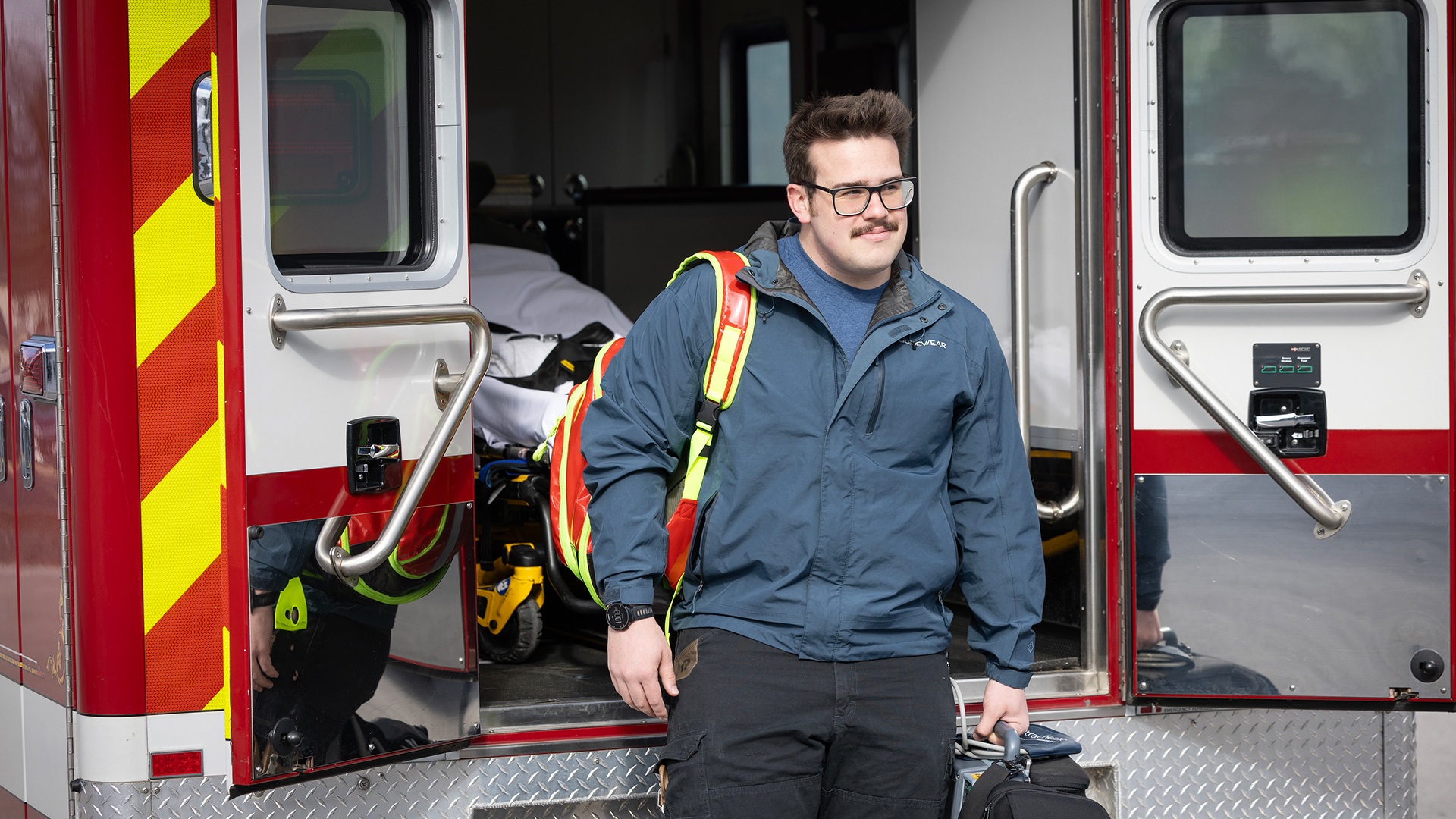
BGSU junior immerses himself in healthcare and research in pursuit of medical school dream
Estimated Reading Time:
Grant Hayden works as an EMT and in a BGSU research lab studying environmental toxins

#1 University in Ohio for Student Experience
Innovative engineering degrees, #1 public university in the midwest students would choose again for the fourth consecutive year.
By Laren Kowalczyk ‘07
Grant Hayden thought he knew what he wanted to do when he enrolled at Bowling Green State University in 2020.
Over time, his interests shifted, and a new dream emerged: becoming a doctor and researcher.
Since that pivotal moment, Hayden has been immersed in healthcare and research, preparing for the next step in his journey, which includes applying for acceptance into an MD-Ph.D. program.
“Medicine is probably the most competitive thing you can do in academia,” Hayden said. “So, I'm doing everything I can right now to give myself a fighting chance at medical school.”
Hayden’s initial interest in the medical field began after he enlisted in the Ohio Army National Guard and trained for 16 weeks to become a combat medic. He chose the assignment without realizing then how it would change his future.
“I sort of just picked it, and then I loved it,” Hayden said. “That decision 100% pivoted me toward medicine.”
Following basic training and deployment for Ohio’s COVID-19 mission in 2021, Hayden reenrolled at BGSU in Spring 2022 and changed his major to biology . He said the transition back to the University was seamless with help from the Nontraditional and Military Student Services Center.
BGSU is ranked the No. 1 university in the Midwest for its comprehensive services and support of veterans and active military students. The annual Best for Vets rankings have recognized the University as a top academic choice consecutively since 2013.
Immersed in research
To support his new career aspirations, Hayden began working as an EMT in Sandusky County and as a research assistant for associate biology professor Dr. James Metcalf, delving into the world of environmental toxins.
As a comprehensive public university, BGSU prioritizes providing students with experiential learning opportunities that are beneficial to their future careers, including offering research opportunities to undergraduates.
Metcalf said that in addition to learning the technical aspects of research, students apply concepts learned in class to real-world settings, sharpen critical thinking skills, learn to adapt and bolster communication and presentation skills.
“Investing time into scientific research is crucial to Grant achieving his goal of attending medical school,” Metcalf said. “He’s learning things through the research and doing things in the lab that will provide him with an advantage when he starts medical school training.”
Hayden’s current research project involves isolating melainabacteria, a subset of cyanobacteria found in the human digestive system that may be a risk factor for Alzheimer’s disease.
“It’s really exciting to be a part of this research,” Hayden said. “That’s why I want to pursue an MD and Ph.D. I want to be involved in patient care and be on the cutting edge of medical research.”
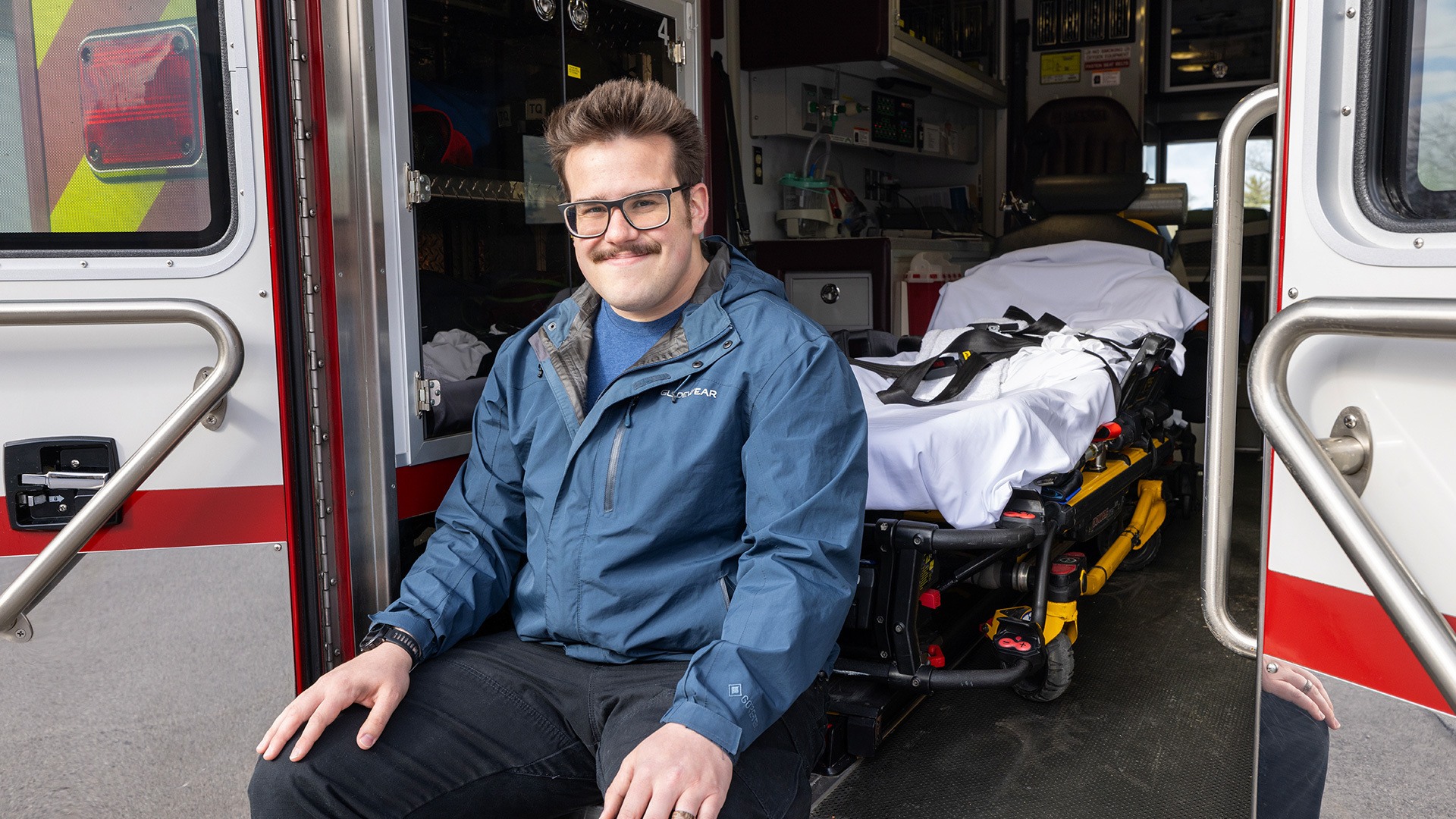
Staying connected to medicine
Hayden said the faculty-to-student ratio at BGSU and support for undergraduate research through the Center for Undergraduate Research and Scholarship (CURS) have been integral to his growth as a researcher.
Metcalf agrees, having witnessed Hayden’s passion and dedication for research intensify since joining the lab.
“Grant is highly engaged, motivated and intelligent,” he said. “He wants to succeed in these experiments, and I’ve seen his interest grow over his time in the lab. This research opportunity will be very useful for Grant’s future educational endeavors and career.”
Outside the BGSU research lab, Hayden’s work as an EMT provides a crucial connection to patient care and the human side of medicine.
“Working as an EMT keeps me anchored in medicine and focused on the big picture of human health,” he said.
Hayden is on track to graduate from BGSU in Spring 2025 and begin his master’s degree in biology in Fall 2025, further bolstering his credentials for medical school. He said he’s grateful for the many ways the University is preparing him for the next step in his educational journey.
“I’m really happy with my choice to come to BGSU,” he said. “It’s been fantastic, and my experiences here have been significant in my growth as a researcher and future physician.”
Related Stories
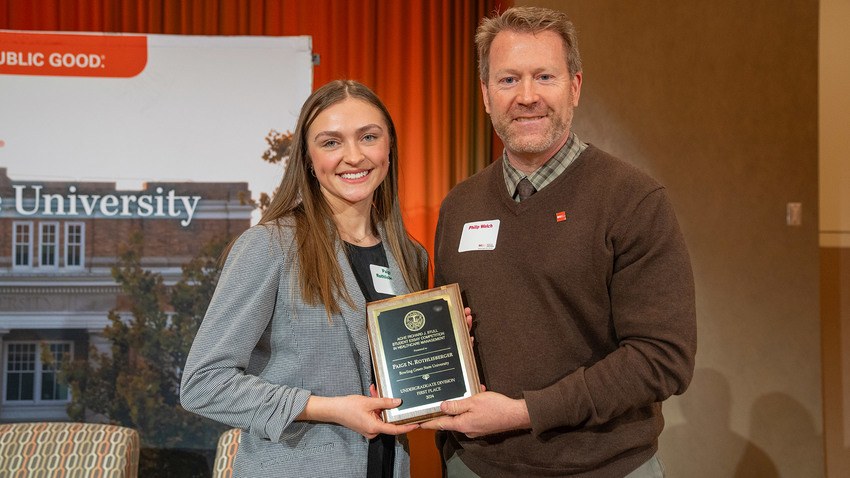
Media Contact | Michael Bratton | [email protected] | 419-372-6349
Updated: 04/23/2024 02:34PM
Frist Center for Autism and Innovation

VUMC Seeking Clinicians who Currently Care for Adults with IDD for Project
Posted by stasikjs on Saturday, April 27, 2024 in Internships and Applications .
Are you a clinician caring for adults with intellectual or developmental disabilities (I/DD)? If yes, the Vanderbilt University Medical Center (VUMC) has an opportunity for you to enhance your skills and improve patient outcomes.
Join experienced clinicians at VUMC who have developed an ECHO I/DD training program designed to foster an all-teach/all-learn environment. The program will consist of live video-conferencing sessions that meet twice a month for an hour for six months, starting in May 2024.
By participating in this program, you will not only enhance your skills but also be compensated for your valuable time. Moreover, the sessions will count for CME, adding to your professional development. The sessions will include managing co-occurring medical and psychiatric conditions, supporting adults with I/DD in the clinic, housing, and community support, supporting families/caregivers, post-secondary education and employment, and more.
Wellpoint sponsors this project, and clinicians who accept Wellpoint insurance are eligible to participate. For more information, please get in touch with Dr. Beth Malow, the Vanderbilt site director, at [email protected] , or see the flyer below.
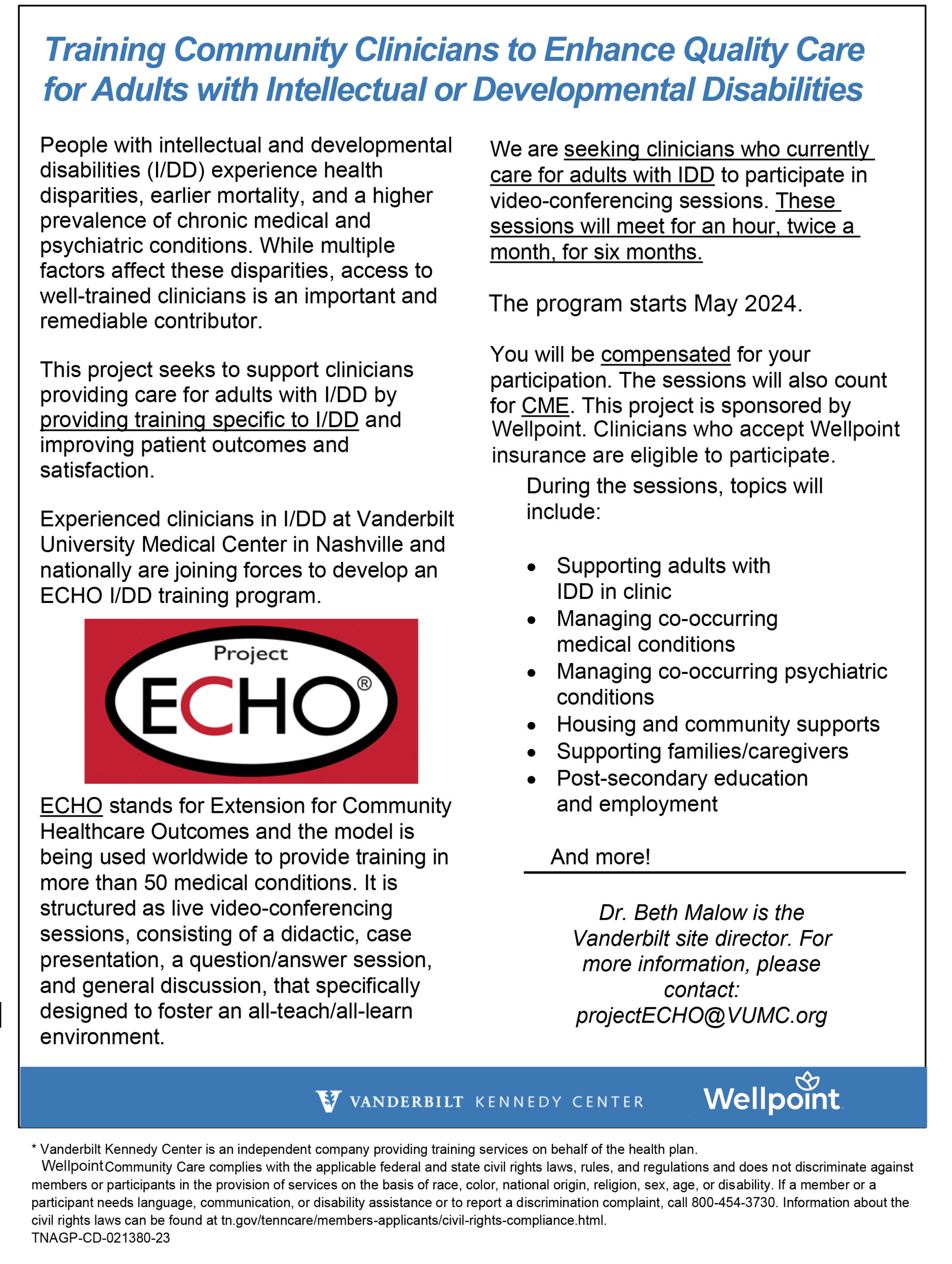
Comments are closed
100 Best universities for Mechanical Engineering in Russia
Updated: February 29, 2024
- Art & Design
- Computer Science
- Engineering
- Environmental Science
- Liberal Arts & Social Sciences
- Mathematics
Below is a list of best universities in Russia ranked based on their research performance in Mechanical Engineering. A graph of 714K citations received by 136K academic papers made by 158 universities in Russia was used to calculate publications' ratings, which then were adjusted for release dates and added to final scores.
We don't distinguish between undergraduate and graduate programs nor do we adjust for current majors offered. You can find information about granted degrees on a university page but always double-check with the university website.
1. Moscow State University
For Mechanical Engineering

2. Tomsk State University

3. St. Petersburg State University

4. Bauman Moscow State Technical University

5. Ufa State Aviation Technical University
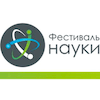
6. Peter the Great St.Petersburg Polytechnic University

7. Tomsk Polytechnic University

8. Ural Federal University

9. South Ural State University

10. National Research University Higher School of Economics

11. Moscow Aviation Institute

12. Novosibirsk State University

13. ITMO University

14. N.R.U. Moscow Power Engineering Institute

15. National Research Nuclear University MEPI

16. Kazan Federal University

17. National University of Science and Technology "MISIS"

18. Moscow Institute of Physics and Technology

19. Samara National Research University

20. Moscow State Technological University "Stankin"

21. Novosibirsk State Technical University

22. RUDN University

23. Southern Federal University

24. Saratov State University

25. Ufa State Petroleum Technological University

26. Samara State Technical University

27. Siberian Federal University

28. Kazan National Research Technical University named after A.N. Tupolev - KAI

29. Perm State Technical University

30. Omsk State Technical University

31. Saint Petersburg State Electrotechnical University

32. Moscow Polytech

33. Saint-Petersburg Mining University

34. Magnitogorsk State Technical University

35. Saratov State Technical University

36. Moscow State University of Railway Engineering

37. Lobachevsky State University of Nizhni Novgorod

38. Nizhny Novgorod State Technical University

39. Tula State University
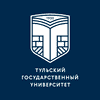
40. Belgorod State Technological University
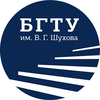
41. Far Eastern Federal University

42. Novgorod State University
43. belgorod state university.

44. Finance Academy under the Government of the Russian Federation

45. Moscow Medical Academy

46. Kazan State Technological University

47. Russian State University of Oil and Gas
48. siberian state aerospace university.

49. Tambov State Technical University
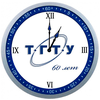
50. Voronezh State University

51. Siberian State Industrial University
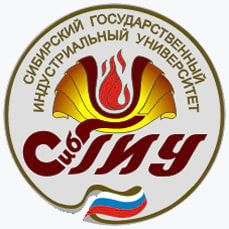
52. Saint Petersburg State Institute of Technology

53. Kalashnikov Izhevsk State Technical University

54. St. Petersburg State University of Architecture and Civil Engineering

55. Mendeleev University of Chemical Technology of Russia

56. Murmansk State Technical University

57. South-Western State University

58. Ogarev Mordovia State University

59. Tomsk State University of Control Systems and Radioelectronics
60. south-russian state university of economics and service.

61. Perm State University

62. Kuzbass State Technical University

63. Russian National Research Medical University

64. Plekhanov Russian University of Economics

65. Ulyanovsk State Technical University

66. Ulyanovsk State University
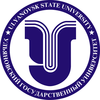
67. Penza State University
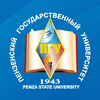
68. Kuban State University of Technology

69. Polzunov Altai State Technical University

70. Chelyabinsk State University
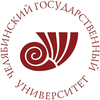
71. Yaroslavl State University

72. University of Tyumen

73. National Research University of Electronic Technology

74. Leningrad State University

75. Moscow State Pedagogical University

76. Udmurt State University
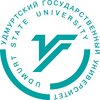
77. Irkutsk State University

78. North-Eastern Federal University

79. Bashkir State University

80. Russian Presidential Academy of National Economy and Public Administration

81. Kuban State University

82. Kuban State Agricultural University

83. St. Petersburg State University of Aerospace Instrumentation

84. Kemerovo State University

85. Immanuel Kant Baltic Federal University

86. Orenburg State University

87. Baltic State Technical University "Voenmeh"

88. Tomsk State University of Architecture and Building
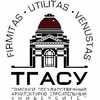
89. Chuvash State University
90. ivanovo state power university.

91. Irkutsk National Research Technical University

92. Orel State University

93. State University of Management

94. Tomsk State Pedagogical University
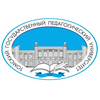
95. Volgograd State University

96. Petrozavodsk State University

97. Tver State University
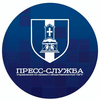
98. Northern Arctic Federal University

99. Omsk State Transport University

100. Kaliningrad State Technical University

The best cities to study Mechanical Engineering in Russia based on the number of universities and their ranks are Moscow , Tomsk , Saint Petersburg , and Ufa .
Engineering subfields in Russia

40 Facts About Elektrostal
Written by Lanette Mayes
Modified & Updated: 02 Mar 2024
Reviewed by Jessica Corbett

Elektrostal is a vibrant city located in the Moscow Oblast region of Russia. With a rich history, stunning architecture, and a thriving community, Elektrostal is a city that has much to offer. Whether you are a history buff, nature enthusiast, or simply curious about different cultures, Elektrostal is sure to captivate you.
This article will provide you with 40 fascinating facts about Elektrostal, giving you a better understanding of why this city is worth exploring. From its origins as an industrial hub to its modern-day charm, we will delve into the various aspects that make Elektrostal a unique and must-visit destination.
So, join us as we uncover the hidden treasures of Elektrostal and discover what makes this city a true gem in the heart of Russia.
Key Takeaways:
- Elektrostal, known as the “Motor City of Russia,” is a vibrant and growing city with a rich industrial history, offering diverse cultural experiences and a strong commitment to environmental sustainability.
- With its convenient location near Moscow, Elektrostal provides a picturesque landscape, vibrant nightlife, and a range of recreational activities, making it an ideal destination for residents and visitors alike.
Known as the “Motor City of Russia.”
Elektrostal, a city located in the Moscow Oblast region of Russia, earned the nickname “Motor City” due to its significant involvement in the automotive industry.
Home to the Elektrostal Metallurgical Plant.
Elektrostal is renowned for its metallurgical plant, which has been producing high-quality steel and alloys since its establishment in 1916.
Boasts a rich industrial heritage.
Elektrostal has a long history of industrial development, contributing to the growth and progress of the region.
Founded in 1916.
The city of Elektrostal was founded in 1916 as a result of the construction of the Elektrostal Metallurgical Plant.
Located approximately 50 kilometers east of Moscow.
Elektrostal is situated in close proximity to the Russian capital, making it easily accessible for both residents and visitors.
Known for its vibrant cultural scene.
Elektrostal is home to several cultural institutions, including museums, theaters, and art galleries that showcase the city’s rich artistic heritage.
A popular destination for nature lovers.
Surrounded by picturesque landscapes and forests, Elektrostal offers ample opportunities for outdoor activities such as hiking, camping, and birdwatching.
Hosts the annual Elektrostal City Day celebrations.
Every year, Elektrostal organizes festive events and activities to celebrate its founding, bringing together residents and visitors in a spirit of unity and joy.
Has a population of approximately 160,000 people.
Elektrostal is home to a diverse and vibrant community of around 160,000 residents, contributing to its dynamic atmosphere.
Boasts excellent education facilities.
The city is known for its well-established educational institutions, providing quality education to students of all ages.
A center for scientific research and innovation.
Elektrostal serves as an important hub for scientific research, particularly in the fields of metallurgy, materials science, and engineering.
Surrounded by picturesque lakes.
The city is blessed with numerous beautiful lakes, offering scenic views and recreational opportunities for locals and visitors alike.
Well-connected transportation system.
Elektrostal benefits from an efficient transportation network, including highways, railways, and public transportation options, ensuring convenient travel within and beyond the city.
Famous for its traditional Russian cuisine.
Food enthusiasts can indulge in authentic Russian dishes at numerous restaurants and cafes scattered throughout Elektrostal.
Home to notable architectural landmarks.
Elektrostal boasts impressive architecture, including the Church of the Transfiguration of the Lord and the Elektrostal Palace of Culture.
Offers a wide range of recreational facilities.
Residents and visitors can enjoy various recreational activities, such as sports complexes, swimming pools, and fitness centers, enhancing the overall quality of life.
Provides a high standard of healthcare.
Elektrostal is equipped with modern medical facilities, ensuring residents have access to quality healthcare services.
Home to the Elektrostal History Museum.
The Elektrostal History Museum showcases the city’s fascinating past through exhibitions and displays.
A hub for sports enthusiasts.
Elektrostal is passionate about sports, with numerous stadiums, arenas, and sports clubs offering opportunities for athletes and spectators.
Celebrates diverse cultural festivals.
Throughout the year, Elektrostal hosts a variety of cultural festivals, celebrating different ethnicities, traditions, and art forms.
Electric power played a significant role in its early development.
Elektrostal owes its name and initial growth to the establishment of electric power stations and the utilization of electricity in the industrial sector.
Boasts a thriving economy.
The city’s strong industrial base, coupled with its strategic location near Moscow, has contributed to Elektrostal’s prosperous economic status.
Houses the Elektrostal Drama Theater.
The Elektrostal Drama Theater is a cultural centerpiece, attracting theater enthusiasts from far and wide.
Popular destination for winter sports.
Elektrostal’s proximity to ski resorts and winter sport facilities makes it a favorite destination for skiing, snowboarding, and other winter activities.
Promotes environmental sustainability.
Elektrostal prioritizes environmental protection and sustainability, implementing initiatives to reduce pollution and preserve natural resources.
Home to renowned educational institutions.
Elektrostal is known for its prestigious schools and universities, offering a wide range of academic programs to students.
Committed to cultural preservation.
The city values its cultural heritage and takes active steps to preserve and promote traditional customs, crafts, and arts.
Hosts an annual International Film Festival.
The Elektrostal International Film Festival attracts filmmakers and cinema enthusiasts from around the world, showcasing a diverse range of films.
Encourages entrepreneurship and innovation.
Elektrostal supports aspiring entrepreneurs and fosters a culture of innovation, providing opportunities for startups and business development.
Offers a range of housing options.
Elektrostal provides diverse housing options, including apartments, houses, and residential complexes, catering to different lifestyles and budgets.
Home to notable sports teams.
Elektrostal is proud of its sports legacy, with several successful sports teams competing at regional and national levels.
Boasts a vibrant nightlife scene.
Residents and visitors can enjoy a lively nightlife in Elektrostal, with numerous bars, clubs, and entertainment venues.
Promotes cultural exchange and international relations.
Elektrostal actively engages in international partnerships, cultural exchanges, and diplomatic collaborations to foster global connections.
Surrounded by beautiful nature reserves.
Nearby nature reserves, such as the Barybino Forest and Luchinskoye Lake, offer opportunities for nature enthusiasts to explore and appreciate the region’s biodiversity.
Commemorates historical events.
The city pays tribute to significant historical events through memorials, monuments, and exhibitions, ensuring the preservation of collective memory.
Promotes sports and youth development.
Elektrostal invests in sports infrastructure and programs to encourage youth participation, health, and physical fitness.
Hosts annual cultural and artistic festivals.
Throughout the year, Elektrostal celebrates its cultural diversity through festivals dedicated to music, dance, art, and theater.
Provides a picturesque landscape for photography enthusiasts.
The city’s scenic beauty, architectural landmarks, and natural surroundings make it a paradise for photographers.
Connects to Moscow via a direct train line.
The convenient train connection between Elektrostal and Moscow makes commuting between the two cities effortless.
A city with a bright future.
Elektrostal continues to grow and develop, aiming to become a model city in terms of infrastructure, sustainability, and quality of life for its residents.
In conclusion, Elektrostal is a fascinating city with a rich history and a vibrant present. From its origins as a center of steel production to its modern-day status as a hub for education and industry, Elektrostal has plenty to offer both residents and visitors. With its beautiful parks, cultural attractions, and proximity to Moscow, there is no shortage of things to see and do in this dynamic city. Whether you’re interested in exploring its historical landmarks, enjoying outdoor activities, or immersing yourself in the local culture, Elektrostal has something for everyone. So, next time you find yourself in the Moscow region, don’t miss the opportunity to discover the hidden gems of Elektrostal.
Q: What is the population of Elektrostal?
A: As of the latest data, the population of Elektrostal is approximately XXXX.
Q: How far is Elektrostal from Moscow?
A: Elektrostal is located approximately XX kilometers away from Moscow.
Q: Are there any famous landmarks in Elektrostal?
A: Yes, Elektrostal is home to several notable landmarks, including XXXX and XXXX.
Q: What industries are prominent in Elektrostal?
A: Elektrostal is known for its steel production industry and is also a center for engineering and manufacturing.
Q: Are there any universities or educational institutions in Elektrostal?
A: Yes, Elektrostal is home to XXXX University and several other educational institutions.
Q: What are some popular outdoor activities in Elektrostal?
A: Elektrostal offers several outdoor activities, such as hiking, cycling, and picnicking in its beautiful parks.
Q: Is Elektrostal well-connected in terms of transportation?
A: Yes, Elektrostal has good transportation links, including trains and buses, making it easily accessible from nearby cities.
Q: Are there any annual events or festivals in Elektrostal?
A: Yes, Elektrostal hosts various events and festivals throughout the year, including XXXX and XXXX.
Was this page helpful?
Our commitment to delivering trustworthy and engaging content is at the heart of what we do. Each fact on our site is contributed by real users like you, bringing a wealth of diverse insights and information. To ensure the highest standards of accuracy and reliability, our dedicated editors meticulously review each submission. This process guarantees that the facts we share are not only fascinating but also credible. Trust in our commitment to quality and authenticity as you explore and learn with us.
Share this Fact:

IMAGES
VIDEO
COMMENTS
How to unlock research opportunities as an international Medical Graduate. Research experience and publications are important for keeping international medical graduates worldwide up-to-date and helping them give the best care possible. During the USMLE journey, IMGs are confronted with the question of their research and publishing experience.
Contact information. For questions, please contact Dr. Abdelaziz by email at [email protected] or by phone at (216) 293-0282. Upvote. International Medical Education. Find the AMA's Observership Programs to help international medical graduates adapt to the practice of medicine in the United States.
Medical students, notably IMGs on the USMLE path, have plenty of research opportunities. These internships enrich classroom learning by fostering critical thinking and clinical judgment while offering a shot at contributing to science, but they also create important networking opportunities that can be valuable for residency matching.
In recent years, there has been a noticeable increase in the number of International Medical Graduates (IMGs) who are pursuing research opportunities and applying to research-oriented specialties/programs. Research has become a highly sought-after component of IMG profiles by academic programs, as they hope to have physicians who can make ...
Formal research training is a limited option for IMG physicians due to work visa restrictions. However, an early-career faculty might explore options for faculty development within an academic institution. Teaching opportunities: IMG physicians should embrace all teaching opportunities as innovation results from a curious mind and a proactive ...
Research electives are a great way for an IMG to undertake academic, publishing, and/or authorship credit. These offer a student to gain a LOR, and in combination with a USCE can be extremely beneficial to a medical student's CV/resume. Find a research position. Research is the most important gateway for IMGs to cross the US residency program.
One in four U.S. physicians is an international medical graduate (IMG), and every year around 12,000 IMGs apply for U.S. residency positions. ... However, if you spend many years doing research, residency programs will be worried about the steep learning curve of reintroducing yourself into clinical medicine. In addition, community-based ...
Research fellows can participate in the program for a duration of 6 months or 12 months and the recommended start date is in May. Earlier or later start dates are also considered on a case-by-case basis. Applicants should submit the following required documents to the Office of International Medicine Programs (IMP) at [email protected]:
The number of IMGs in practice has grown by nearly 18% since 2010. That figure is bigger than the 15% rise in U.S. medical graduates over that same time period. The largest number of licensed IMGs have graduated from schools in India (23%) —per the FSMB census—followed by the Caribbean (18%), Pakistan (6%), the Philippines (6%) and Mexico ...
Visa requirements. If you want to apply for pre-residency fellowships or medical residencies in the US as an IMG, you'll first need to apply for ECMFG certification. To complete the application, you'll need to submit your medical school diploma from your home country for verification. You'll also need to demonstrate that you have some ...
Utilise state medical societies: State and local physician medical societies sometimes host or help match IMGs to USCE opportunities in their region. Consider federal programs: Examples are the US Department of State's Exchange Visitor Program that may help IMGs in J1 clinical programs.
International medical graduates (IMGs) come to the United States for graduate medical education (GME) for many reasons including the quality of training and high-quality standards, predictability of career path after graduation, opportunity for board certification that is recognized worldwide, and the need to complete an American residency program in order to have the opportunity to practice ...
Engaging in research is crucial for IMGs, as it enhances residency applications and career prospects. Research showcases dedication to academic excellence, critical thinking skills, and staying updated on medical advancements. It sets IMGs apart, offers networking opportunities, and builds credibility in the medical community.
Our UCLA IMG Program is sustained by the hard work and dedication of our program leadership and staff, our participants and alumni, and with the critical generosity of our donors who share our vision of what this program means to vulnerable populations throughout California. Support our efforts to improve access to health for all. Producing ...
The research fellow will attend all educational programs of the division and participate in an observational capacity in clinical activities. At the end of the fellowship, the fellow is expected to have rich knowledge in trauma, emergency surgery and surgical critical care research as well as have completed multiple studies, which can be ...
Clinical training solutions and software that empower medical trainees, schools, and hospitals. At AMOpportunities, we strive to make U.S. clinical experiences accessible to everyone. We offer 280+ clinical experiences in 70+ specialties and subspecialties. search rotations.
Mayo Clinic is a leading academic medical and research center with an annual research budget of $890 million, of which $565 million comes from external grants and contracts. During your training, you have the opportunity to work on a wide range of basic, translational and clinical research projects in state-of-the-art facilities.
Q&A: How IMGs overcome big barriers to practice medicine in U.S. Twelve years ago, Kamalika Roy, MD, made the journey from India to continue her medical training in the U.S. as an international medical graduate (IMG). She has since completed residency and fellowship training, her master's in clinical research, and continued as a faculty in ...
In this section, they answer questions about their research results. ... ChatGPT accurately identified the type of medical test being performed in up to 60 percent of instances. It was able to identify the radioactive substance used in about half of these images. However, ChatGPT was rarely able to mark findings within the images correctly.
The ethical governance of Artificial Intelligence (AI) in health care and public health continues to be an urgent issue for attention in policy, research, and practice [1,2,3].Beyond the growing number of AI applications being implemented in health care, capabilities of AI models such as Large Language Models (LLMs) expand the potential reach and significance of AI technologies across health ...
Staying connected to medicine. Hayden said the faculty-to-student ratio at BGSU and support for undergraduate research through the Center for Undergraduate Research and Scholarship (CURS) have been integral to his growth as a researcher.. Metcalf agrees, having witnessed Hayden's passion and dedication for research intensify since joining the lab.
The managing agent for the anticipated program announcements/funding opportunities is the CDMRP at the U.S. Army Medical Research and Development Command (USAMRDC). The ASUDRP is providing the information in this pre-announcement to allow investigators time to plan and develop ideas for submission to the anticipated FY24 funding opportunities.
Are you a clinician caring for adults with intellectual or developmental disabilities (I/DD)? If yes, the Vanderbilt University Medical Center (VUMC) has an opportunity for you to enhance your skills and improve patient outcomes. Join experienced clinicians at VUMC who have developed an ECHO I/DD training program designed to foster an all-teach/all-learn environment. The program...
EduRank.org is an independent metric-based ranking of 14,131 universities from 183 countries. We utilize the world's largest scholarly papers database with 98,302,198 scientific publications and 2,149,512,106 citations to rank universities across 246 research topics.
Step 1: Find a residency program. IMGs make up about one-quarter of the U.S. physician workforce. Becoming one of those doctors requires taking the steps to qualify to be a resident physician in the U.S. health care system. Some key steps include passing the U.S. Medical Licensing Examination (USMLE) exams and submitting applications to ...
Elektrostal serves as an important hub for scientific research, particularly in the fields of metallurgy, materials science, and engineering. Surrounded by picturesque lakes. The city is blessed with numerous beautiful lakes, offering scenic views and recreational opportunities for locals and visitors alike.
See other industries within the Health Care and Social Assistance sector: Child Care Services , Community Food and Housing, and Emergency and Other Relief Services , Continuing Care Retirement Communities and Assisted Living Facilities for the Elderly , General Medical and Surgical Hospitals , Home Health Care Services , Individual and Family Services , Medical and Diagnostic Laboratories ...
Today, Elemash is one of the largest TVEL nuclear fuel production companies in Russia, specializing in fuel assemblies for nuclear power plants, research reactors, and naval nuclear reactors. Its fuel assemblies for RBMK, VVER, and fast reactors are used in 67 reactors worldwide. 2 It also produced MOX fuel assemblies for the BN-800 and the ...